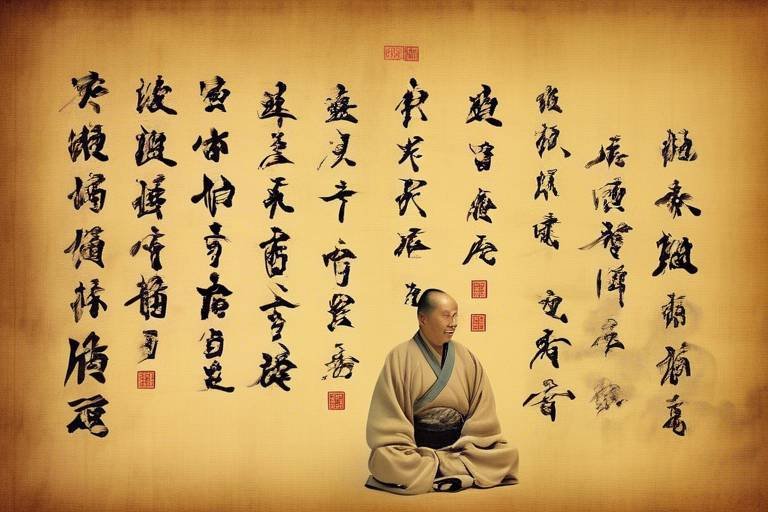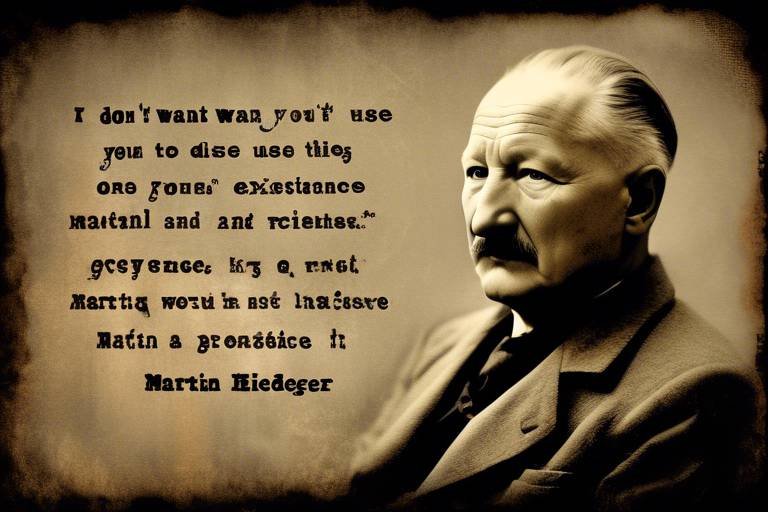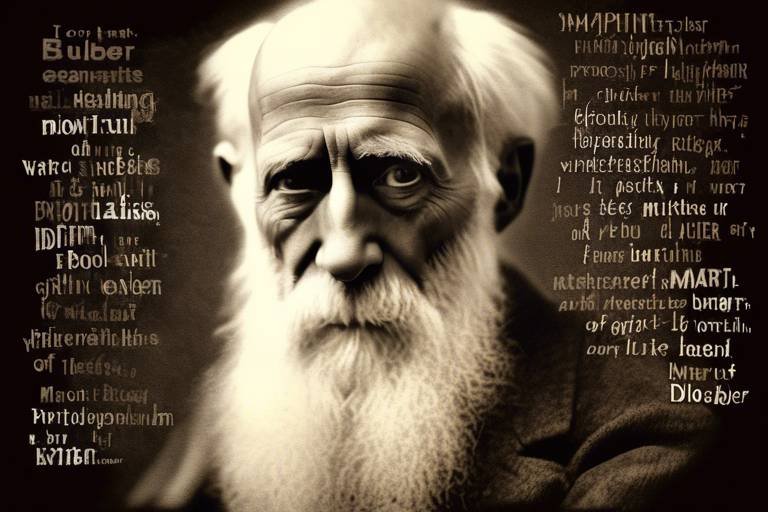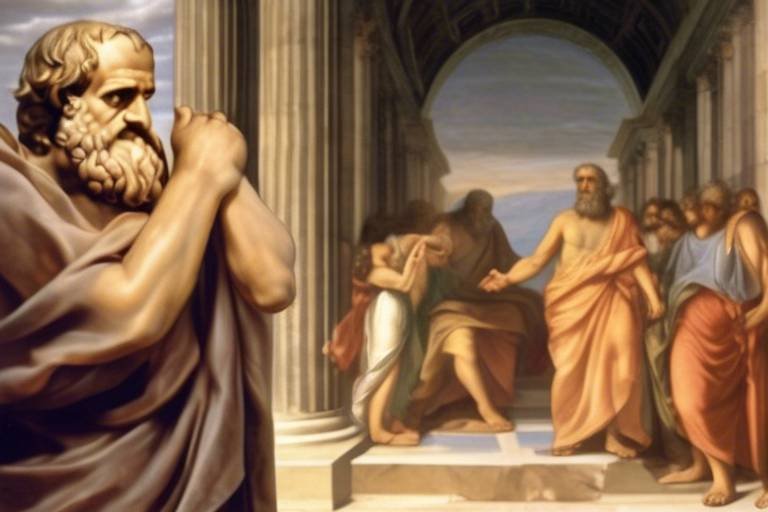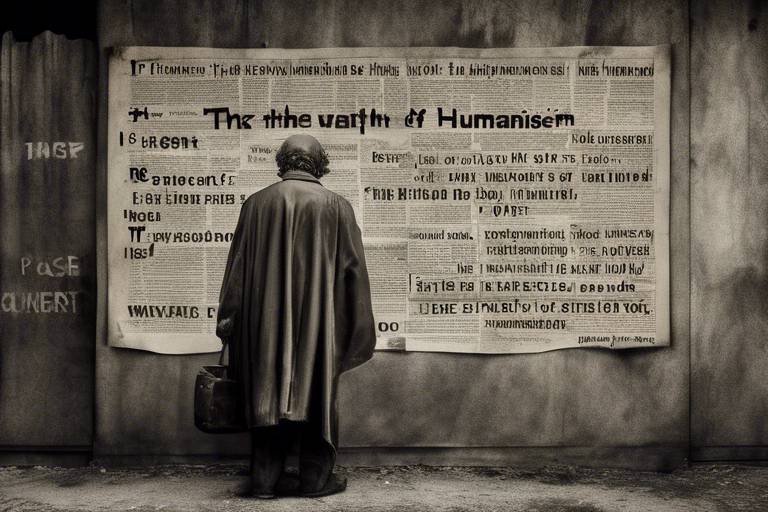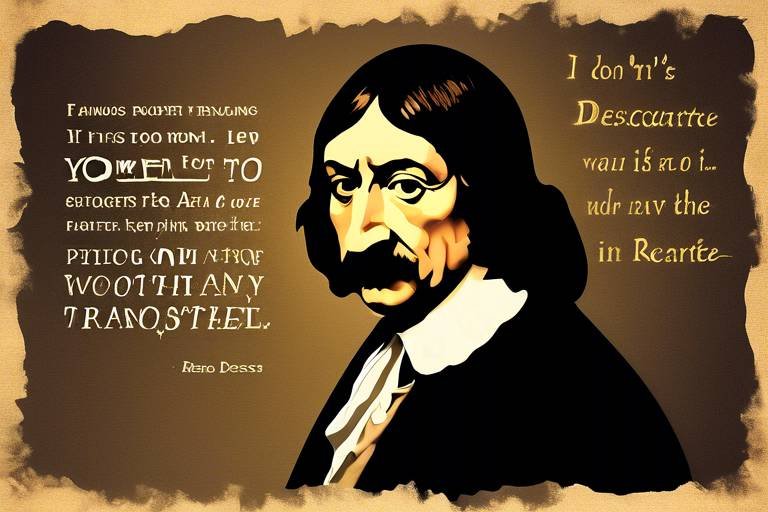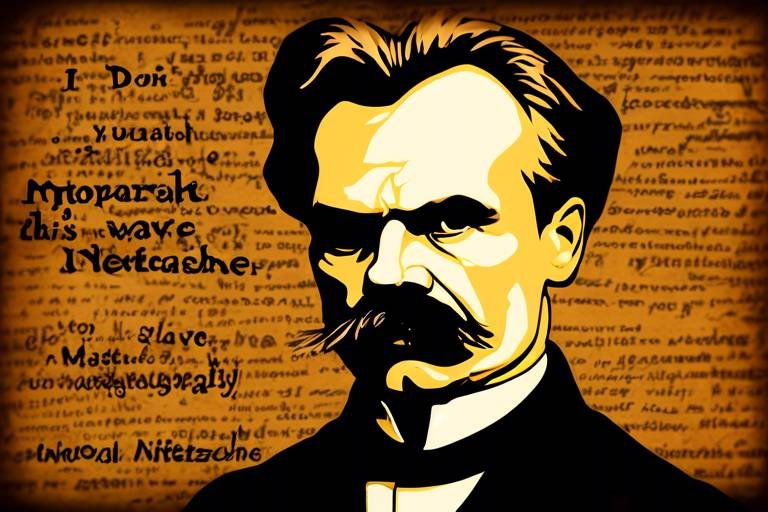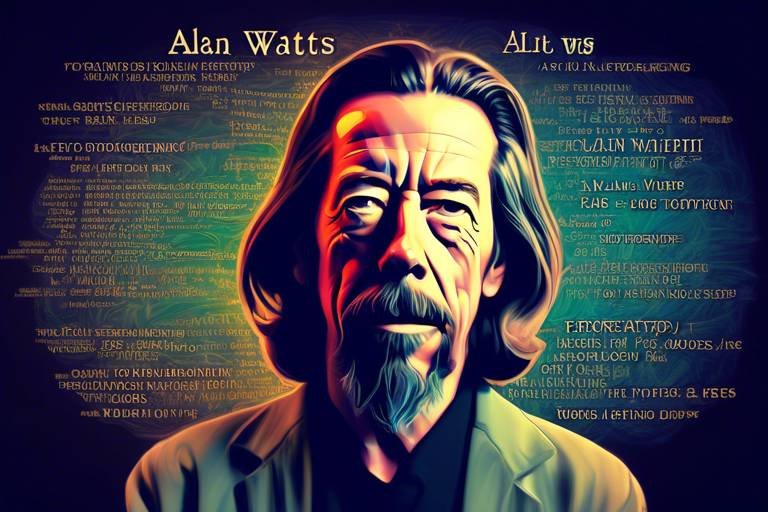The Taoist Philosophy - Understanding the Dao De Jing
Taoism, an ancient philosophy rooted in Chinese culture, offers a profound perspective on life, nature, and existence. At the heart of this philosophy lies the Tao, often translated as the "Way," which serves as a guiding principle for understanding the universe and our place within it. The Dao De Jing, attributed to the sage Laozi, is the foundational text that encapsulates these teachings. Through its verses, we are invited to explore the essence of the Tao, the importance of harmony, and the art of living authentically. In a world that often prioritizes chaos and competition, the wisdom of the Dao De Jing encourages us to slow down, reflect, and align ourselves with the natural flow of life.
The teachings of the Dao De Jing are not just philosophical musings; they are practical guidelines that can be applied to our modern lives. By understanding the principles outlined in this text, we can cultivate a greater sense of peace, balance, and connectedness with the world around us. As we delve deeper into the concepts of Wu Wei (non-action), naturalness, and the interconnectedness of all things, we begin to see how these ideas resonate with our daily experiences and challenges. The beauty of Taoism lies in its simplicity, urging us to embrace a life free from excessive desires and complications.
In this article, we will explore the fundamental concepts of Taoism as outlined in the Dao De Jing, providing insights into its teachings, principles, and relevance in modern life. From the importance of simplicity and balance to the wisdom of embracing change, we will uncover how Taoist philosophy can inspire us to live more authentically and harmoniously. So, are you ready to embark on a journey of self-discovery and enlightenment through the teachings of the Dao De Jing? Let's dive in!
The concept of the Tao, or the Way, serves as the foundation of Taoist philosophy, emphasizing the natural order of the universe and the importance of aligning oneself with this intrinsic flow. Imagine a river flowing effortlessly towards the sea; this is a metaphor for the Tao. Just as the river navigates around obstacles without force, Taoism teaches us to find our path by flowing with the currents of life rather than against them.
Wu Wei, or non-action, is a central tenet in Taoism, advocating for effortless action in harmony with the Tao, rather than forceful striving against the natural course of events. This doesn’t mean doing nothing; rather, it’s about embracing a state of being where our actions are spontaneous and aligned with the rhythm of the universe. Think of a skilled dancer moving gracefully across the floor; their movements appear effortless because they are in tune with the music. In the same way, Wu Wei encourages us to find our dance within the larger tapestry of life.
Naturalness, or Ziran, is a key aspect of Taoist thought, encouraging individuals to embrace their true nature and the spontaneity of life, leading to genuine living and fulfillment. In a world filled with expectations and societal pressures, Ziran reminds us to shed the masks we wear and embrace our authentic selves. It’s about finding that sweet spot where we can express who we truly are without fear of judgment.
Authenticity in Taoism involves recognizing and expressing one's true self, free from societal expectations, allowing for a more harmonious existence in alignment with the Tao. When we live authentically, we cultivate a sense of peace and fulfillment that resonates deeply within us. It’s like a tree growing strong and tall, reaching for the sun while remaining rooted in the earth. This authenticity not only enriches our own lives but also fosters deeper connections with others.
Taoism teaches the inevitability of change, encouraging acceptance and adaptability as essential qualities for navigating life's uncertainties and maintaining inner peace. Just as the seasons change, so too do our circumstances and experiences. Embracing change allows us to flow with life rather than resist it, creating space for growth and transformation.
Taoism emphasizes the interconnectedness of all existence, promoting a holistic view that recognizes the unity and mutual influence of all elements within the universe. Imagine the intricate web of life, where every thread is connected to another. Our actions have ripple effects, and understanding this interconnectedness helps us cultivate compassion and empathy towards others and the world around us.
Simplicity in Taoism advocates for a life free from excessive desires and complications, allowing individuals to focus on what truly matters and cultivate inner tranquility. In our fast-paced world, it’s easy to get caught up in the whirlwind of consumerism and ambition. Taoism invites us to step back, simplify our lives, and rediscover the joy in the little things—like a quiet moment in nature or a heartfelt conversation with a friend.
Incorporating minimalism into daily routines can enhance clarity and peace, aligning with Taoist principles by reducing distractions and fostering a deeper connection with the present moment. This doesn’t mean we have to live with only the bare essentials; rather, it’s about being intentional with what we choose to keep in our lives. By decluttering our physical and mental spaces, we create room for growth and mindfulness.
Balance is essential in Taoist philosophy, encouraging individuals to harmonize their physical, emotional, and spiritual aspects to achieve a fulfilling and peaceful existence. Think of it as a tightrope walker skillfully balancing on a thin line; it requires focus and awareness. By nurturing all aspects of ourselves, we can create a sense of equilibrium that allows us to navigate life’s challenges with grace.
The Dao De Jing, attributed to Laozi, is a foundational text of Taoism that offers profound wisdom and guidance, shaping the philosophy and practice of countless individuals throughout history. Its verses are like seeds planted in the mind, capable of blossoming into transformative insights that can guide our actions and thoughts. The beauty of the Dao De Jing lies in its simplicity and depth, making it accessible to anyone seeking wisdom.
Exploring the key teachings and verses of the Dao De Jing reveals timeless insights into human nature, leadership, and the art of living, making it relevant across cultures and eras. Each verse serves as a mirror, reflecting our own experiences and encouraging us to ponder our relationship with the world. For instance, the emphasis on humility and compassion in leadership resonates in today’s world, where genuine connection and understanding are more important than ever.
The principles of the Dao De Jing can be applied in contemporary life, offering guidance for personal growth, conflict resolution, and fostering a deeper understanding of oneself and others. Whether it’s navigating workplace dynamics, enhancing personal relationships, or simply finding peace within ourselves, the wisdom of the Dao De Jing serves as a beacon of light, guiding us towards a more harmonious existence.
- What is Taoism? Taoism is an ancient Chinese philosophy that emphasizes living in harmony with the Tao, or the natural flow of the universe.
- Who wrote the Dao De Jing? The Dao De Jing is attributed to Laozi, a legendary figure in Chinese philosophy.
- How can I apply Taoist principles in my daily life? You can apply Taoist principles by embracing simplicity, practicing Wu Wei (non-action), and recognizing the interconnectedness of all things.
- What does Wu Wei mean? Wu Wei translates to "non-action," which refers to the practice of taking effortless action in alignment with the natural flow of life.
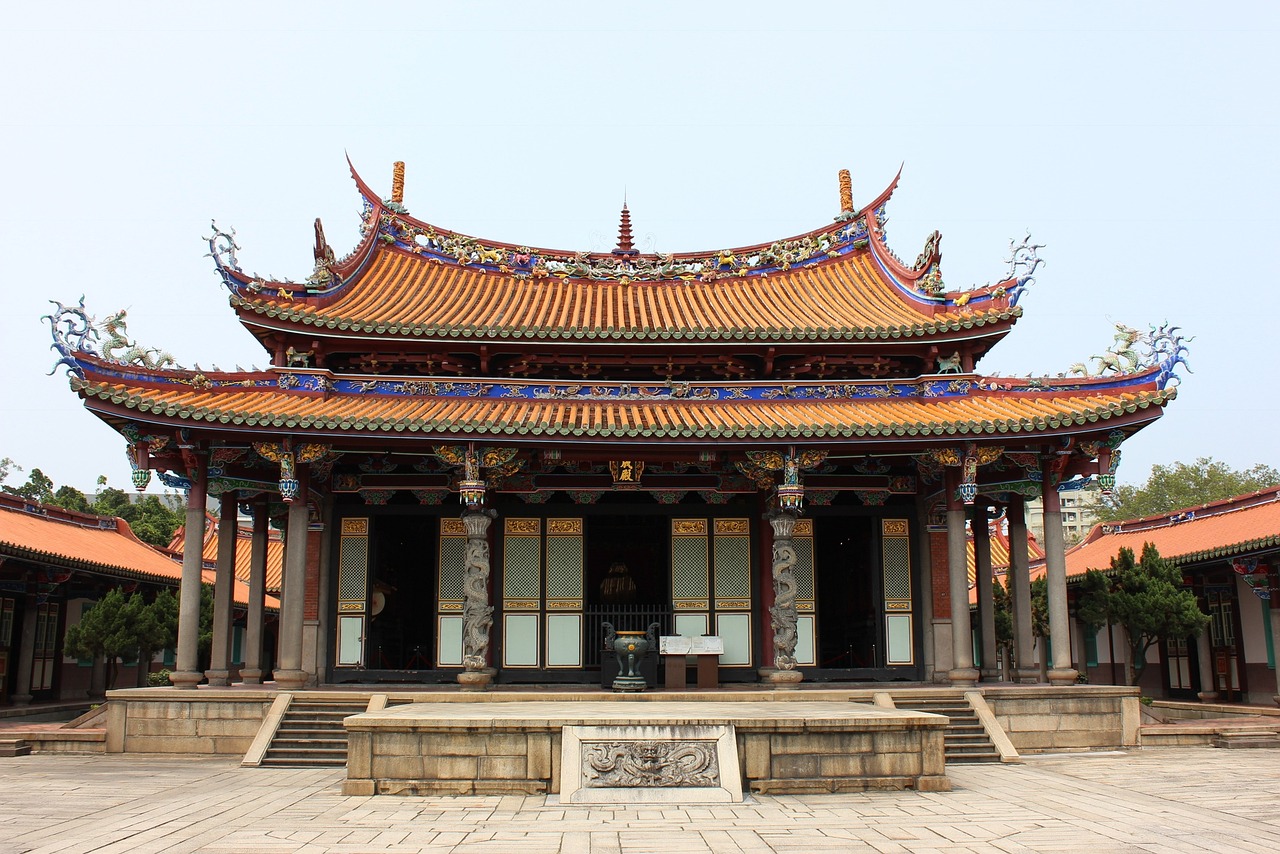
The Essence of Tao
The concept of the Tao, often referred to as the Way, serves as the bedrock of Taoist philosophy. Imagine a flowing river, effortlessly carving its path through the landscape. This imagery encapsulates the essence of the Tao, which embodies the natural order of the universe. Just like the river, the Tao encourages us to align ourselves with this intrinsic flow rather than swim against the current. It’s about recognizing that life has its own rhythm and that we can achieve harmony by moving with it rather than against it.
In Taoism, the Tao is not merely a set of rules or beliefs; it is a living principle that permeates all existence. It teaches us that everything is interconnected and that each action we take resonates throughout the universe. When we understand the essence of the Tao, we begin to see the beauty in simplicity and the importance of being present. This understanding can lead to a profound sense of peace and fulfillment, as we learn to trust the process of life.
Moreover, the Tao emphasizes the importance of balance. Just like the yin and yang symbol, where light and dark coexist, the Tao teaches us that opposites are not adversaries but complementary forces. This balance is essential for maintaining harmony in our lives. When we embrace the Tao, we start to recognize the value of moderation and the danger of excess. It reminds us that too much of anything—be it work, pleasure, or ambition—can disrupt our inner peace.
Ultimately, understanding the essence of the Tao is about cultivating a sense of awareness. It invites us to pause, reflect, and connect with our surroundings, allowing us to appreciate the subtle beauty of life. By embracing this philosophy, we can navigate our daily challenges with grace and ease, transforming obstacles into opportunities for growth. In this way, the Tao serves as a guide, illuminating our path and encouraging us to live authentically and harmoniously.
As we delve deeper into the teachings of Taoism, we find that the essence of the Tao is not just a philosophical concept but a practical approach to living. It urges us to observe nature, learn from its cycles, and apply these lessons to our own lives. By doing so, we can cultivate a deeper understanding of ourselves and the world around us, enriching our experiences and fostering a sense of unity with all that exists.
- What is the Tao? The Tao is the fundamental principle of Taoism, representing the natural order of the universe and the way in which we can align ourselves with it.
- How can I apply the Tao in my daily life? You can apply the Tao by embracing simplicity, seeking balance, and being mindful of your actions and their impact on the world around you.
- What does Wu Wei mean? Wu Wei translates to "non-action" or "effortless action," encouraging individuals to act in harmony with the Tao rather than forcing outcomes.
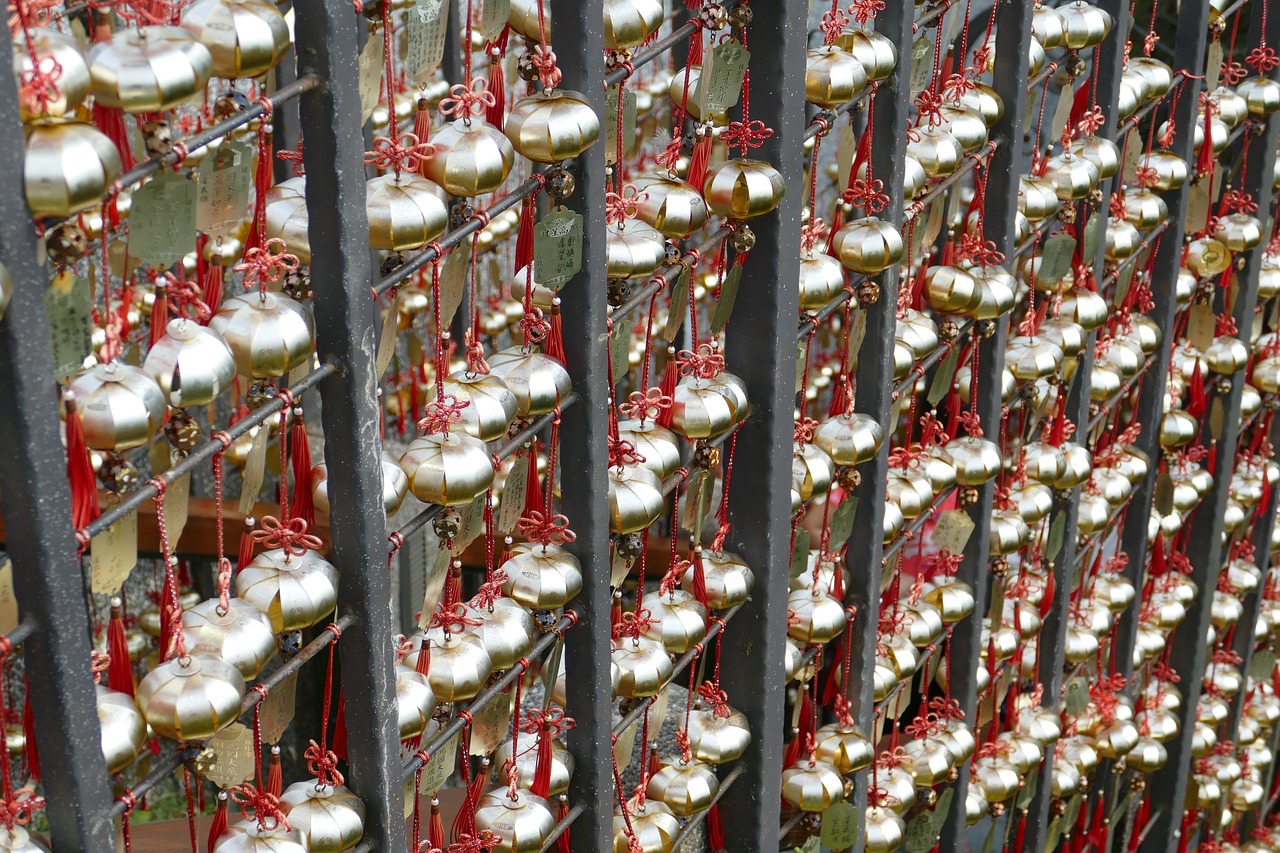
the Way,
This article explores the fundamental concepts of Taoism as outlined in the Dao De Jing, providing insights into its teachings, principles, and relevance in modern life.
The concept of the Tao, or the Way, serves as the foundation of Taoist philosophy, emphasizing the natural order of the universe and the importance of aligning oneself with this intrinsic flow. Imagine standing at the edge of a river, watching the water glide effortlessly over rocks and around bends. This is the essence of the Tao—an unforced, natural movement that invites us to flow with life rather than resist it. In a world that often pushes us to strive, compete, and achieve, the Tao teaches us to step back and observe. It encourages us to find our place within the larger tapestry of existence, reminding us that we are not separate from nature, but rather an integral part of it.
Wu Wei, or non-action, is a central tenet in Taoism, advocating for effortless action in harmony with the Tao, rather than forceful striving against the natural course of events. This doesn't mean being passive or lazy; instead, it's about recognizing the right moment to act and allowing things to unfold naturally. Think of it like sailing: you don’t fight against the wind; instead, you adjust your sails and let the wind carry you forward. In our daily lives, embracing Wu Wei can lead to less stress and greater fulfillment, as we learn to trust the flow of life.
Naturalness, or Ziran, is a key aspect of Taoist thought, encouraging individuals to embrace their true nature and the spontaneity of life, leading to genuine living and fulfillment. It’s about shedding the layers of societal expectations and discovering who we truly are beneath it all. This principle challenges us to live authentically, to express our unique selves without the constraints of conformity. In a society that often values appearances over authenticity, Ziran invites us to be real, to be ourselves, and to celebrate our individuality.
Authenticity in Taoism involves recognizing and expressing one's true self, free from societal expectations, allowing for a more harmonious existence in alignment with the Tao. When we live authentically, we create a life that resonates with our core values and beliefs. It's like wearing a comfortable pair of shoes that fit just right; we can walk our path without discomfort or hesitation. By embracing our true selves, we foster deeper connections with others and cultivate a sense of belonging in the universe.
Taoism teaches the inevitability of change, encouraging acceptance and adaptability as essential qualities for navigating life's uncertainties and maintaining inner peace. Just as the seasons shift and the river flows, our lives are in constant motion. Instead of resisting change, Taoism invites us to embrace it, seeing it as an opportunity for growth and transformation. This mindset can be liberating, allowing us to let go of fear and anxiety about the future, and instead, focus on the present moment.
Taoism emphasizes the interconnectedness of all existence, promoting a holistic view that recognizes the unity and mutual influence of all elements within the universe. Just as threads in a tapestry weave together to create a beautiful picture, every action we take reverberates throughout the world. This understanding fosters compassion and empathy, reminding us that our choices impact not only ourselves but also the broader community and environment.
Simplicity in Taoism advocates for a life free from excessive desires and complications, allowing individuals to focus on what truly matters and cultivate inner tranquility. In a culture that often equates success with accumulation, Taoism offers a refreshing perspective: true happiness comes from within, not from material possessions. By simplifying our lives, we can declutter our minds and create space for what is truly important.
Incorporating minimalism into daily routines can enhance clarity and peace, aligning with Taoist principles by reducing distractions and fostering a deeper connection with the present moment. This doesn’t mean we have to live in stark environments devoid of personality; rather, it’s about being intentional with what we choose to surround ourselves with. Imagine walking into a room that feels calm and inviting, where every item serves a purpose or brings joy. This is the essence of minimalism in action.
Balance is essential in Taoist philosophy, encouraging individuals to harmonize their physical, emotional, and spiritual aspects to achieve a fulfilling and peaceful existence. Life is like a seesaw; when one side is heavier, it tips and creates instability. By nurturing all aspects of our being, we can create a harmonious existence that allows us to thrive. This balance is not a destination but an ongoing journey, requiring constant attention and adjustment.
The Dao De Jing, attributed to Laozi, is a foundational text of Taoism that offers profound wisdom and guidance, shaping the philosophy and practice of countless individuals throughout history. Its verses resonate with truth and simplicity, encouraging readers to reflect on their lives and the world around them. The teachings found within this ancient text remain relevant today, providing insights that can help us navigate the complexities of modern life.
Exploring the key teachings and verses of the Dao De Jing reveals timeless insights into human nature, leadership, and the art of living, making it relevant across cultures and eras. Each chapter presents a unique perspective, often filled with paradoxes that challenge conventional thinking. These teachings invite us to ponder deep questions about existence and our role within it.
The principles of the Dao De Jing can be applied in contemporary life, offering guidance for personal growth, conflict resolution, and fostering a deeper understanding of oneself and others. Whether in the workplace, at home, or in relationships, the wisdom of the Dao De Jing encourages us to approach challenges with grace and insight, reminding us that the journey is just as important as the destination.
- What is the Tao? The Tao, or the Way, is the fundamental principle of Taoism, representing the natural order of the universe.
- What does Wu Wei mean? Wu Wei translates to non-action, emphasizing effortless action in alignment with the Tao.
- How can I live more authentically? Embrace your true self, express your individuality, and let go of societal expectations.
- What is the significance of the Dao De Jing? The Dao De Jing is a foundational text of Taoism that offers profound insights into life and existence.
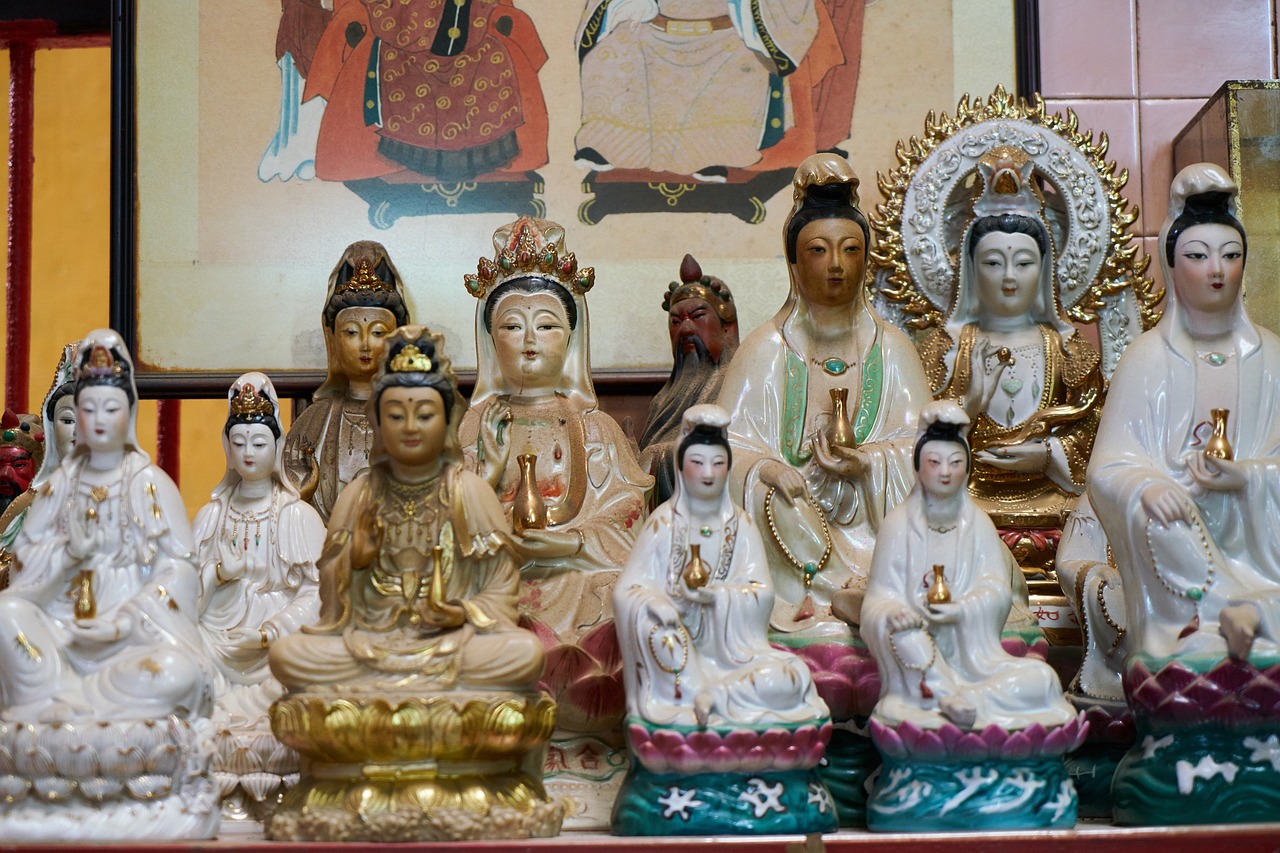
serves as the foundation of Taoist philosophy, emphasizing the natural order of the universe and the importance of aligning oneself with this intrinsic flow.
This article explores the fundamental concepts of Taoism as outlined in the Dao De Jing, providing insights into its teachings, principles, and relevance in modern life.
The concept of the Tao, or the Way, serves as the foundation of Taoist philosophy, emphasizing the natural order of the universe and the importance of aligning oneself with this intrinsic flow. Imagine a river flowing effortlessly; it doesn't force its way through rocks or obstacles but instead finds the path of least resistance. This metaphor captures the essence of the Tao. It teaches us that life is much like that river—when we align ourselves with the natural flow of the universe, we experience less struggle and more harmony.
At its core, the Tao represents the underlying principle that governs all things. It is not a deity or a personified force but rather a universal law that connects everything. The Tao is ever-present, silently guiding the rhythm of nature, the seasons, and even human emotions. When we strive to understand and embrace the Tao, we begin to see the world through a different lens, one that appreciates the beauty of simplicity and the wisdom of patience.
In Taoism, the idea of alignment with the Tao is crucial. It suggests that when we let go of our need to control every aspect of our lives, we open ourselves up to the natural flow of existence. This doesn't mean we become passive; rather, we learn to move with the currents of life, responding to situations as they arise instead of forcing outcomes. This approach fosters a sense of peace and fulfillment, as we recognize that we are part of a larger tapestry of existence.
Moreover, understanding the Tao allows us to appreciate the interconnectedness of all things. Just as each drop of water contributes to the river, every action we take has a ripple effect on the world around us. By aligning ourselves with the Tao, we become more aware of our impact on others and the environment, promoting a sense of responsibility and compassion in our daily lives.
In summary, the essence of the Tao is about recognizing and embracing the natural order of the universe. It encourages us to align ourselves with this flow, leading to a more harmonious and fulfilling life. As we navigate our journeys, let us remember the river's wisdom—sometimes, the best action is to simply let go and trust in the process.
Wu Wei, or non-action, is a central tenet in Taoism, advocating for effortless action in harmony with the Tao, rather than forceful striving against the natural course of events.
Naturalness, or Ziran, is a key aspect of Taoist thought, encouraging individuals to embrace their true nature and the spontaneity of life, leading to genuine living and fulfillment.
Authenticity in Taoism involves recognizing and expressing one's true self, free from societal expectations, allowing for a more harmonious existence in alignment with the Tao.
Taoism teaches the inevitability of change, encouraging acceptance and adaptability as essential qualities for navigating life's uncertainties and maintaining inner peace.
Taoism emphasizes the interconnectedness of all existence, promoting a holistic view that recognizes the unity and mutual influence of all elements within the universe.
Simplicity in Taoism advocates for a life free from excessive desires and complications, allowing individuals to focus on what truly matters and cultivate inner tranquility.
Incorporating minimalism into daily routines can enhance clarity and peace, aligning with Taoist principles by reducing distractions and fostering a deeper connection with the present moment.
Balance is essential in Taoist philosophy, encouraging individuals to harmonize their physical, emotional, and spiritual aspects to achieve a fulfilling and peaceful existence.
The Dao De Jing, attributed to Laozi, is a foundational text of Taoism that offers profound wisdom and guidance, shaping the philosophy and practice of countless individuals throughout history.
Exploring the key teachings and verses of the Dao De Jing reveals timeless insights into human nature, leadership, and the art of living, making it relevant across cultures and eras.
The principles of the Dao De Jing can be applied in contemporary life, offering guidance for personal growth, conflict resolution, and fostering a deeper understanding of oneself and others.
- What is the Tao? The Tao is the fundamental principle that underlies the universe, emphasizing natural order and harmony.
- What does Wu Wei mean? Wu Wei translates to "non-action," promoting effortless action in alignment with the Tao.
- How can I apply Taoism in my life? You can apply Taoism by embracing simplicity, finding balance, and aligning yourself with the natural flow of life.
- What is the Dao De Jing? The Dao De Jing is a classic text of Taoism that contains the teachings of Laozi, offering wisdom on living harmoniously.
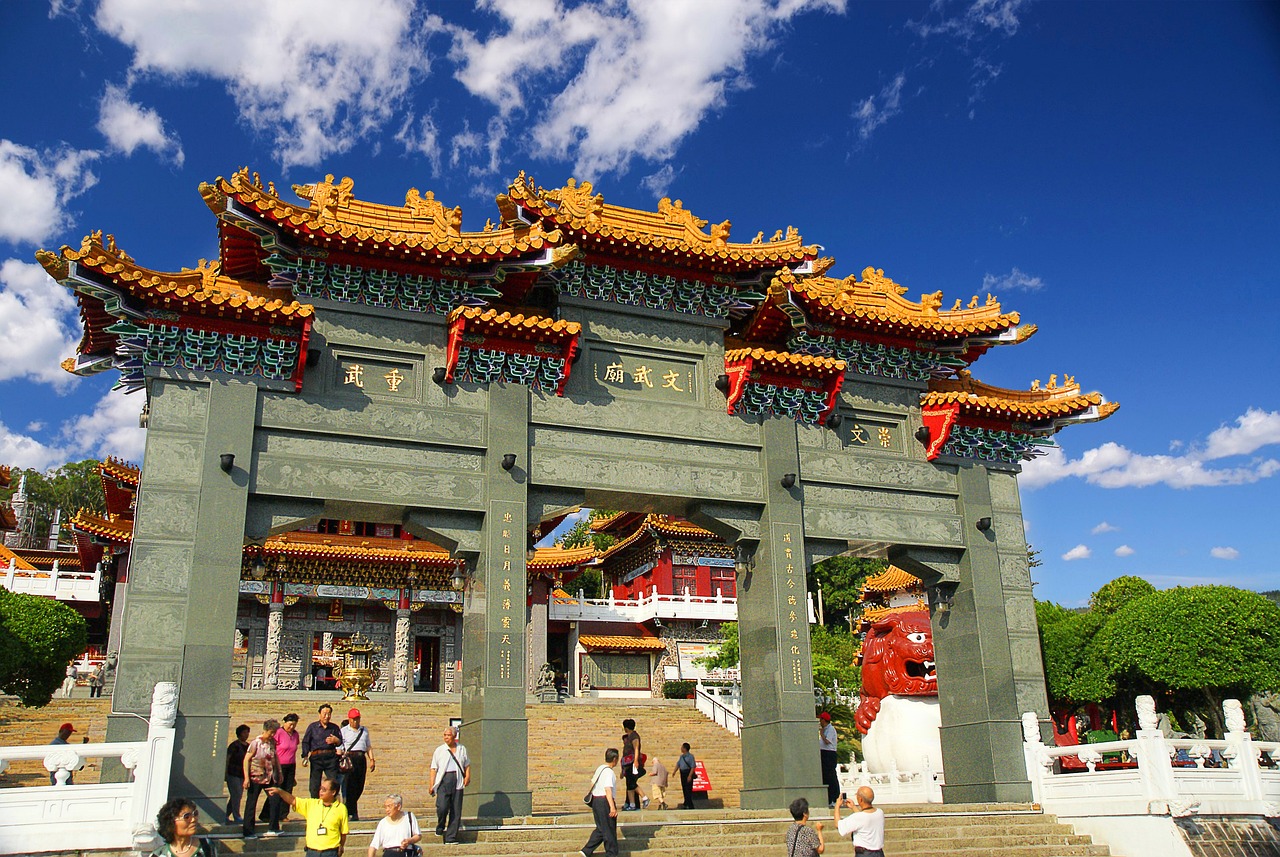
The Role of Wu Wei
Wu Wei, often translated as "non-action", is a cornerstone of Taoist philosophy that may seem paradoxical at first. How can one achieve anything through non-action? The beauty of Wu Wei lies in its emphasis on effortless action, encouraging individuals to align with the natural flow of the universe rather than forcing their will against it. Imagine a river flowing smoothly; it doesn’t struggle against rocks or bends in its path but instead adapts and finds the easiest route forward. This is the essence of Wu Wei—moving with the current of life rather than against it.
In practical terms, Wu Wei invites us to embrace a state of being where we are less focused on relentless striving and more attuned to the rhythms of life. This doesn’t mean being passive or lazy; rather, it’s about recognizing the right moments to act and allowing things to unfold naturally. Think of it as a dance where you’re not just following your partner's lead but also responding to the music's tempo and flow. When we practice Wu Wei, we cultivate a sense of inner peace and clarity that empowers us to make decisions that are both timely and impactful.
Moreover, Wu Wei encourages us to let go of the need for control. In our fast-paced world, we often feel the pressure to constantly push forward, to do more, and to achieve more. Yet, the teachings of Wu Wei remind us that sometimes the most profound progress comes from stepping back and allowing life to guide us. This principle can be applied in various aspects of life, such as:
- Workplace Dynamics: Instead of forcing ideas or outcomes, fostering a collaborative environment can lead to more innovative solutions.
- Personal Relationships: Allowing relationships to develop naturally often leads to deeper connections than trying to force compatibility.
- Self-Discovery: Embracing who you are without the pressure to conform can lead to a more authentic and fulfilling life.
By practicing Wu Wei, we learn to trust the process and recognize that every moment holds potential. It’s about finding balance and harmony in our actions, which ultimately leads to a more fulfilling life. When we stop forcing outcomes, we often find that things fall into place more effortlessly than we could have ever imagined. This principle not only applies to our personal lives but also serves as a profound lesson in leadership and influence.
In essence, Wu Wei teaches us that action and inaction are not opposites but rather two sides of the same coin. By embracing this philosophy, we can navigate the complexities of life with grace and ease, cultivating a deeper understanding of ourselves and our place in the world.
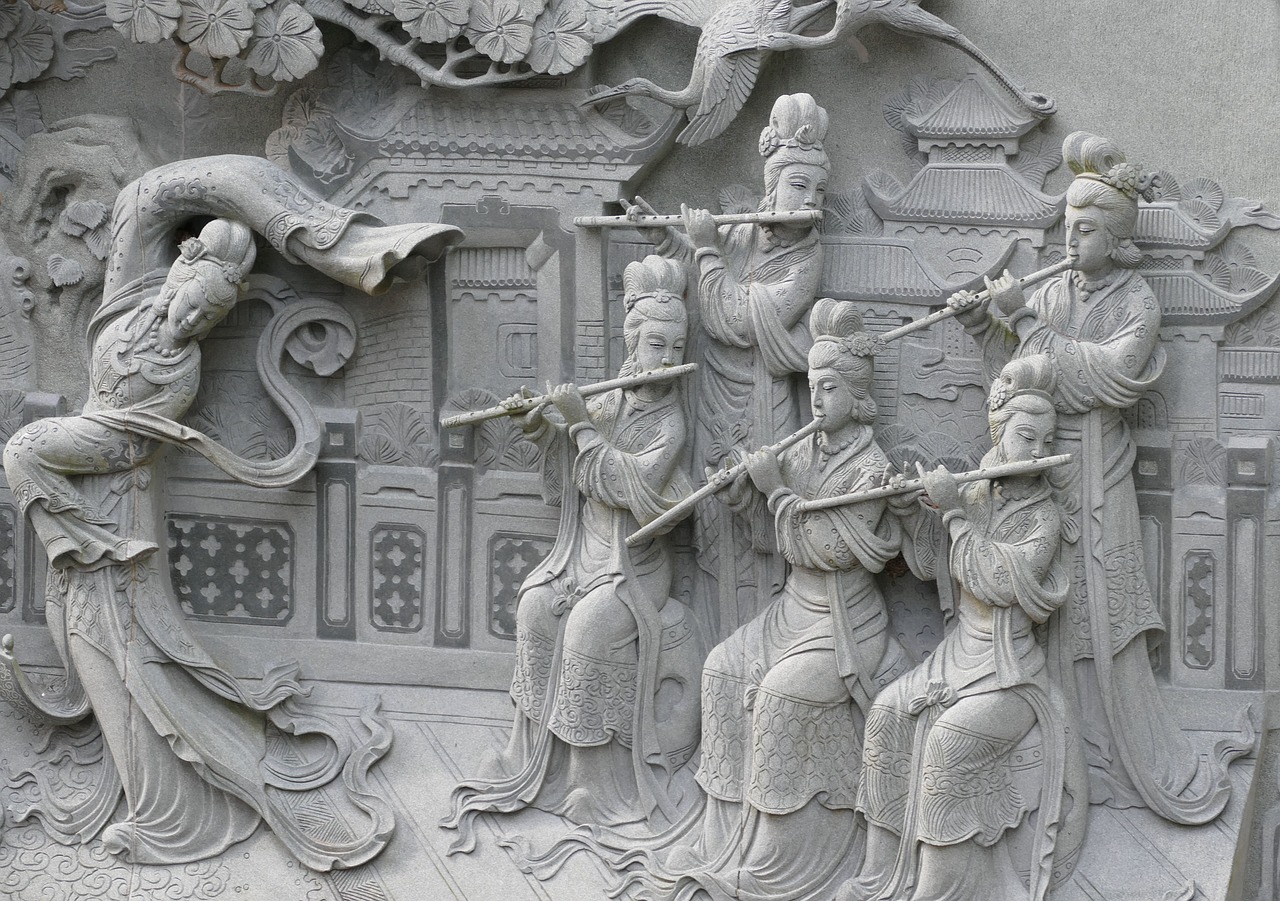
non-action,
This article explores the fundamental concepts of Taoism as outlined in the Dao De Jing, providing insights into its teachings, principles, and relevance in modern life.
The concept of the Tao, or the Way, serves as the foundation of Taoist philosophy, emphasizing the natural order of the universe and the importance of aligning oneself with this intrinsic flow.
Wu Wei, or non-action, is a central tenet in Taoism, advocating for effortless action in harmony with the Tao, rather than forceful striving against the natural course of events. Imagine a river flowing smoothly; it doesn’t struggle against the rocks in its path but rather finds its way around them. In the same way, Wu Wei encourages us to navigate life’s challenges with grace and fluidity.
Naturalness, or Ziran, is a key aspect of Taoist thought, encouraging individuals to embrace their true nature and the spontaneity of life, leading to genuine living and fulfillment.
Authenticity in Taoism involves recognizing and expressing one's true self, free from societal expectations, allowing for a more harmonious existence in alignment with the Tao.
Taoism teaches the inevitability of change, encouraging acceptance and adaptability as essential qualities for navigating life's uncertainties and maintaining inner peace.
Taoism emphasizes the interconnectedness of all existence, promoting a holistic view that recognizes the unity and mutual influence of all elements within the universe.
Simplicity in Taoism advocates for a life free from excessive desires and complications, allowing individuals to focus on what truly matters and cultivate inner tranquility.
Incorporating minimalism into daily routines can enhance clarity and peace, aligning with Taoist principles by reducing distractions and fostering a deeper connection with the present moment.
Balance is essential in Taoist philosophy, encouraging individuals to harmonize their physical, emotional, and spiritual aspects to achieve a fulfilling and peaceful existence.
The Dao De Jing, attributed to Laozi, is a foundational text of Taoism that offers profound wisdom and guidance, shaping the philosophy and practice of countless individuals throughout history.
Exploring the key teachings and verses of the Dao De Jing reveals timeless insights into human nature, leadership, and the art of living, making it relevant across cultures and eras.
The principles of the Dao De Jing can be applied in contemporary life, offering guidance for personal growth, conflict resolution, and fostering a deeper understanding of oneself and others.
Wu Wei, often translated as non-action, is a profound concept in Taoism that encourages us to align our actions with the natural rhythms of the world around us. This doesn’t mean doing nothing; instead, it’s about engaging in actions that feel effortless and natural, as opposed to forcing outcomes through sheer willpower. Think of it as dancing with the universe rather than wrestling with it. When we practice Wu Wei, we allow life to unfold without unnecessary struggle.
Consider this: when you try too hard to control a situation, it often leads to frustration and resistance. However, when you step back and trust the process, you may find that solutions emerge organically. This principle can be applied in various aspects of life, from personal relationships to career choices. By adopting a mindset of non-action, we open ourselves to opportunities that we might otherwise miss while being caught up in our relentless pursuits.
Wu Wei can be seen as a dance of balance, where we learn to respond to life’s challenges with a sense of ease. Here are a few key elements to understanding Wu Wei:
- Effortlessness: Actions taken in harmony with the Tao feel natural and fluid.
- Acceptance: Embracing situations as they are, rather than how we want them to be.
- Intuition: Trusting our instincts to guide our actions rather than overthinking.
Incorporating Wu Wei into your life can lead to a greater sense of peace and fulfillment. By letting go of the need to control every outcome, you may find that life flows more smoothly, much like a river that carves its path through the landscape, adapting to the contours of the earth.
- What is the main idea behind Wu Wei? Wu Wei emphasizes acting in accordance with the natural flow of life, allowing events to unfold without forceful intervention.
- How can I practice Wu Wei in my daily life? Start by observing situations without rushing to control them. Allow your natural instincts to guide your actions.
- Is Wu Wei the same as laziness? No, Wu Wei is about engaging in actions that feel effortless and natural, not about avoiding responsibility.
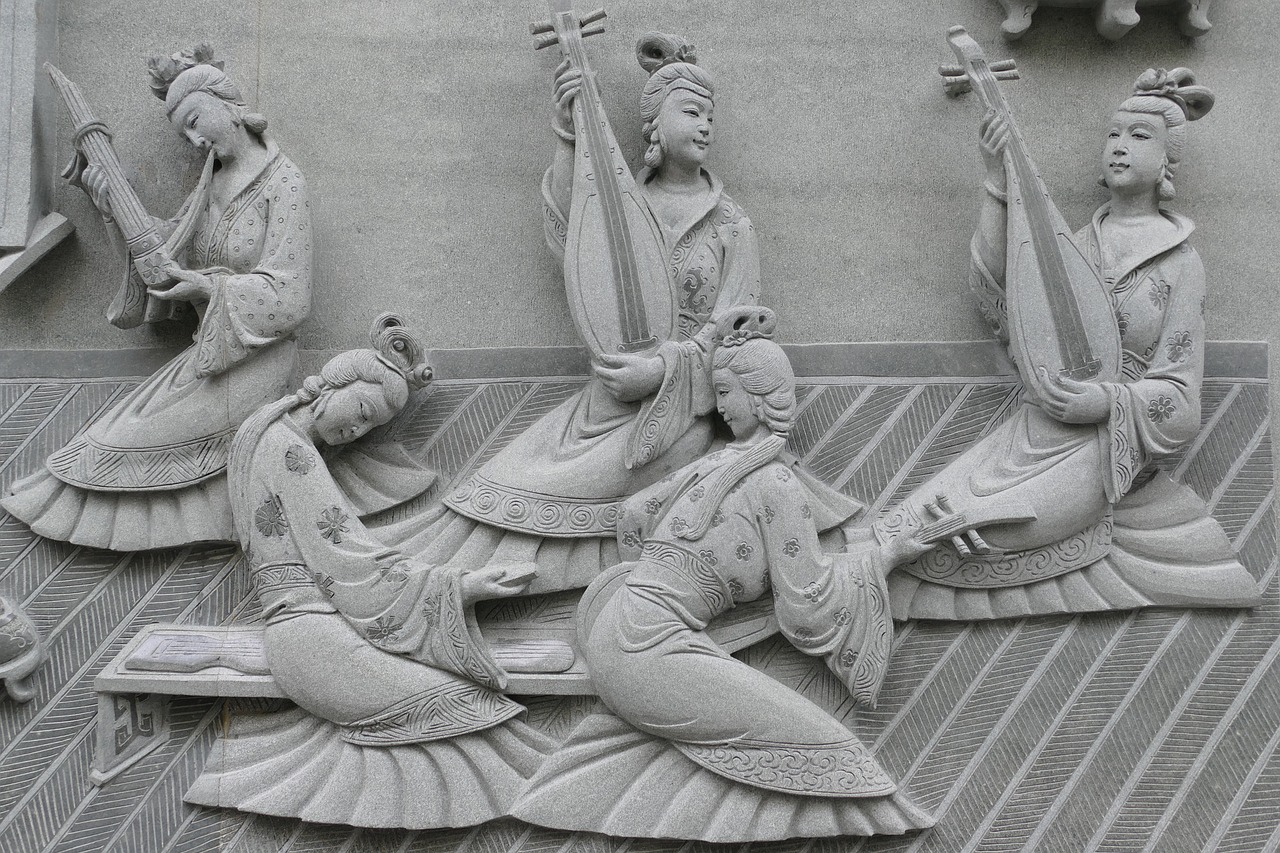
is a central tenet in Taoism, advocating for effortless action in harmony with the Tao, rather than forceful striving against the natural course of events.
This article explores the fundamental concepts of Taoism as outlined in the Dao De Jing, providing insights into its teachings, principles, and relevance in modern life.
The concept of the Tao, or the Way, serves as the foundation of Taoist philosophy, emphasizing the natural order of the universe and the importance of aligning oneself with this intrinsic flow.
Wu Wei, or non-action, is a central tenet in Taoism, advocating for effortless action in harmony with the Tao, rather than forceful striving against the natural course of events. Imagine trying to swim upstream against a powerful current; it’s exhausting and often leads nowhere. In contrast, when you allow yourself to float with the current, you find that you can navigate the waters with ease. This metaphor beautifully encapsulates the essence of Wu Wei. It encourages individuals to engage in actions that are spontaneous and fluid, rather than forced or contrived.
Wu Wei is not about being passive; rather, it is about recognizing the right moment to act and then doing so effortlessly. This principle teaches us that sometimes the best way to achieve our goals is not through relentless effort but through a deep understanding of the situation and allowing things to unfold naturally. It’s like tending to a garden: you don’t force the flowers to bloom; instead, you provide the right conditions and let nature take its course.
Naturalness, or Ziran, is a key aspect of Taoist thought, encouraging individuals to embrace their true nature and the spontaneity of life, leading to genuine living and fulfillment.
Authenticity in Taoism involves recognizing and expressing one's true self, free from societal expectations, allowing for a more harmonious existence in alignment with the Tao.
Taoism teaches the inevitability of change, encouraging acceptance and adaptability as essential qualities for navigating life's uncertainties and maintaining inner peace.
Taoism emphasizes the interconnectedness of all existence, promoting a holistic view that recognizes the unity and mutual influence of all elements within the universe.
Simplicity in Taoism advocates for a life free from excessive desires and complications, allowing individuals to focus on what truly matters and cultivate inner tranquility.
Incorporating minimalism into daily routines can enhance clarity and peace, aligning with Taoist principles by reducing distractions and fostering a deeper connection with the present moment.
Balance is essential in Taoist philosophy, encouraging individuals to harmonize their physical, emotional, and spiritual aspects to achieve a fulfilling and peaceful existence.
The Dao De Jing, attributed to Laozi, is a foundational text of Taoism that offers profound wisdom and guidance, shaping the philosophy and practice of countless individuals throughout history.
Exploring the key teachings and verses of the Dao De Jing reveals timeless insights into human nature, leadership, and the art of living, making it relevant across cultures and eras.
The principles of the Dao De Jing can be applied in contemporary life, offering guidance for personal growth, conflict resolution, and fostering a deeper understanding of oneself and others.
- What is the main idea of Wu Wei?
Wu Wei emphasizes taking effortless action in alignment with the natural flow of life, rather than forcing outcomes. - How can I apply Wu Wei in my daily life?
By observing situations and responding naturally, rather than reacting with force or pressure, you can embody Wu Wei. - Is Wu Wei about being lazy?
No, it’s about being active in a way that feels natural and unforced, not about inaction. - How does Wu Wei relate to stress management?
By practicing Wu Wei, you can reduce stress by letting go of the need to control every aspect of life and allowing things to unfold.
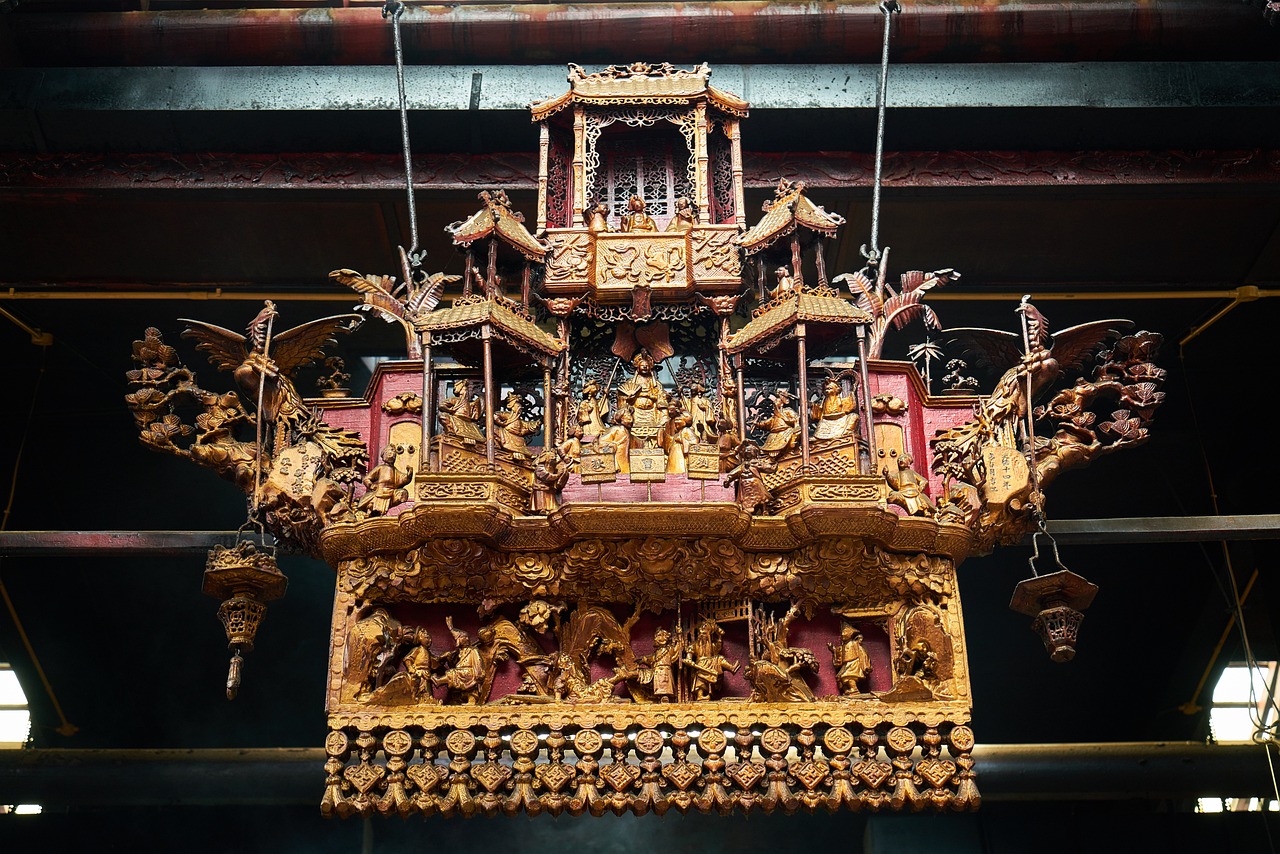
The Principle of Naturalness
The principle of Naturalness, or Ziran, is a cornerstone of Taoist philosophy that invites us to reconnect with our true selves and the world around us. Imagine a river flowing effortlessly, carving its path through the landscape. This is the essence of Ziran—living in a way that feels organic and unforced. In a society that often demands conformity and perfection, embracing our natural state can feel like a revolutionary act. It encourages us to shed the layers of societal expectations and rediscover the spontaneity that lies within.
At its core, Ziran teaches us that we are not separate from nature; rather, we are an integral part of it. Just as a tree grows towards the sun, we too have an innate direction that guides us toward our authentic selves. This alignment with our true nature fosters a sense of genuine living and profound fulfillment. When we stop resisting and start flowing with life, we open ourselves to a world of possibilities. It’s akin to dancing with the rhythm of life rather than trying to impose our own beats.
Living authentically means recognizing and expressing our true selves, free from the constraints of what others expect us to be. This journey of self-discovery can be both exhilarating and daunting. To help illustrate this, consider the following aspects of embracing Ziran:
- Self-Acceptance: Acknowledging our strengths and weaknesses without judgment.
- Spontaneity: Allowing ourselves to act naturally, responding to situations as they arise.
- Mindfulness: Being present in the moment, appreciating life as it unfolds.
Embracing change is another vital aspect of Ziran. Life is inherently fluid, and resisting this flow can lead to frustration and discontent. Instead, by accepting the inevitability of change, we cultivate resilience and adaptability. This mindset is not just about surviving life's storms but thriving in them. Think of a bamboo tree that bends with the wind; it does not break but instead sways gracefully, demonstrating strength through flexibility.
Incorporating the principle of Naturalness into our daily lives can lead to a more harmonious existence. It allows us to align with the natural rhythms of life, fostering a deeper connection with ourselves and the universe. Whether it's through simple practices like spending time in nature, engaging in creative pursuits, or practicing mindfulness, there are countless ways to embrace Ziran. The key is to listen to the whispers of our inner being and allow it to guide us on our journey.
Ultimately, the principle of Naturalness invites us to live authentically, embracing who we are and the world around us. It’s about finding peace in our uniqueness and celebrating the intricate tapestry of life. By doing so, we not only enrich our own lives but also contribute to the greater harmony of the universe.
- What is Ziran? Ziran refers to the principle of naturalness in Taoism, emphasizing living in a way that feels authentic and unforced.
- How can I incorporate Ziran into my life? You can embrace Ziran by practicing self-acceptance, spontaneity, and mindfulness in your daily activities.
- Why is embracing change important in Taoism? Accepting change allows us to adapt and thrive in life’s uncertainties, leading to greater inner peace.
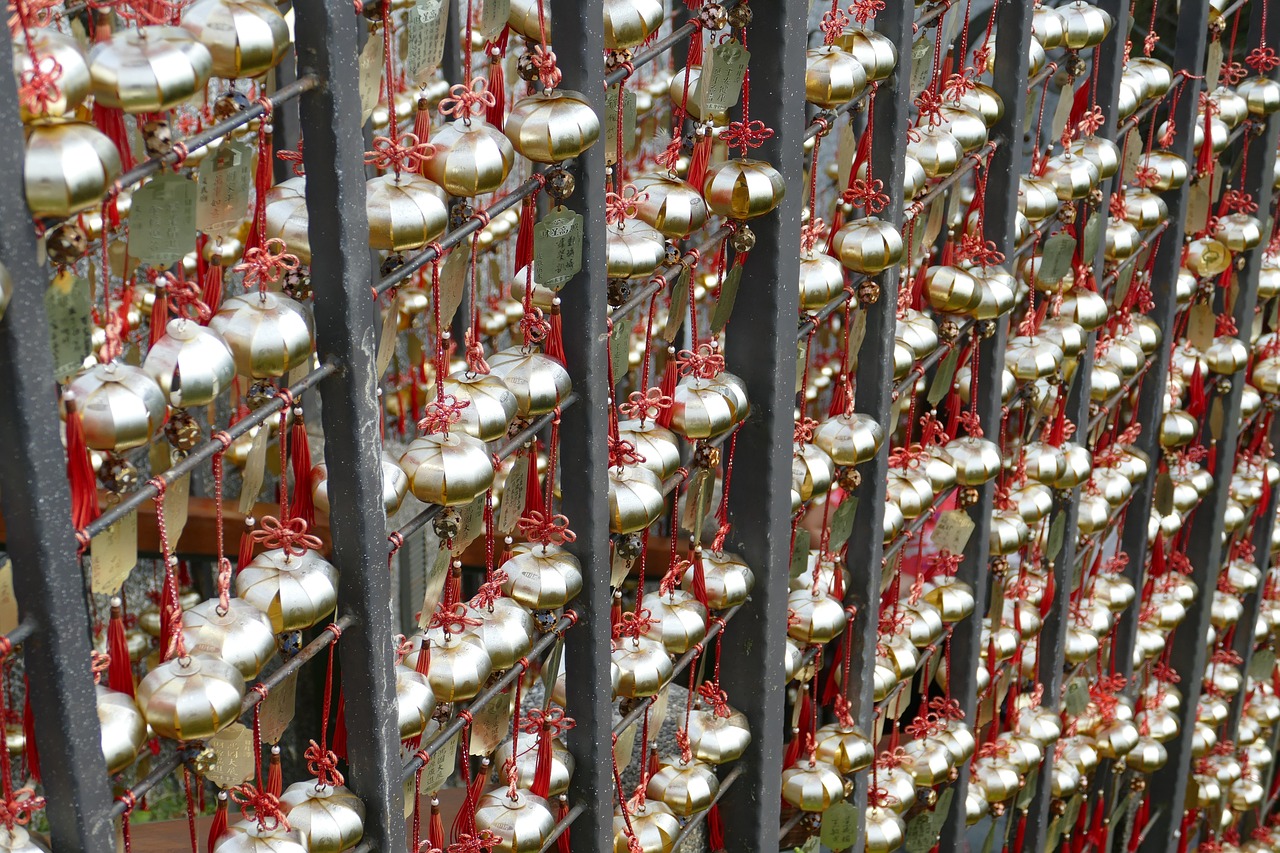
Living Authentically
Living authentically is a cornerstone of Taoist philosophy, and it’s all about being true to yourself. Imagine you’re a tree in a forest: if you try to grow like a different tree, you’re going to struggle. But if you embrace your unique shape and size, you’ll thrive! In the same way, Taoism encourages us to shed societal expectations and embrace our true nature. It’s about recognizing that each of us has a unique path, and when we align with that path, life flows more smoothly.
In a world that often pressures us to conform, living authentically can feel like a radical act. It’s easy to get caught up in what others think or how we should behave. But authenticity is about digging deep and finding out who you really are beneath all the layers. It’s like peeling an onion—each layer reveals more of your true self. When we live authentically, we experience a sense of freedom and fulfillment that is hard to achieve otherwise.
One of the beautiful aspects of Taoism is its emphasis on naturalness (Ziran). This principle encourages us to embrace our spontaneity and the natural flow of life. When we allow ourselves to be who we truly are, we invite a sense of ease and joy into our lives. This doesn’t mean we won’t face challenges or discomfort; rather, it means we approach life with a sense of authenticity that helps us navigate those challenges with grace.
Here are a few ways to cultivate authenticity in your life:
- Self-Reflection: Take time to reflect on your values, passions, and what truly matters to you. Journaling or meditating can be great tools for this.
- Embrace Vulnerability: Allow yourself to be vulnerable. Share your thoughts and feelings with trusted friends or family members. This fosters deeper connections and helps you express your true self.
- Let Go of Perfection: Understand that nobody is perfect. Embracing your flaws and quirks is part of what makes you, you!
- Follow Your Intuition: Trust your gut feelings. Often, our intuition can guide us toward authentic choices that align with our true selves.
Living authentically not only benefits you but also positively impacts those around you. When you express your true self, you encourage others to do the same. It creates a ripple effect, fostering an environment where authenticity can flourish. Just think about it: wouldn’t it be amazing if everyone felt free to be themselves? Imagine the creativity, love, and connection that could emerge!
In conclusion, embracing authenticity is a journey, not a destination. It requires patience and self-compassion. But as you embark on this journey, remember that the Tao is always there, guiding you toward your true nature. So, let go of the masks, embrace your uniqueness, and watch as your life transforms in beautiful ways.
- What does it mean to live authentically? Living authentically means being true to your values, beliefs, and feelings, rather than conforming to societal expectations.
- How can I start living more authentically? Begin by engaging in self-reflection, embracing your vulnerabilities, and following your intuition.
- Why is authenticity important in Taoism? Authenticity aligns with the Taoist principle of naturalness, allowing individuals to live in harmony with their true selves and the universe.
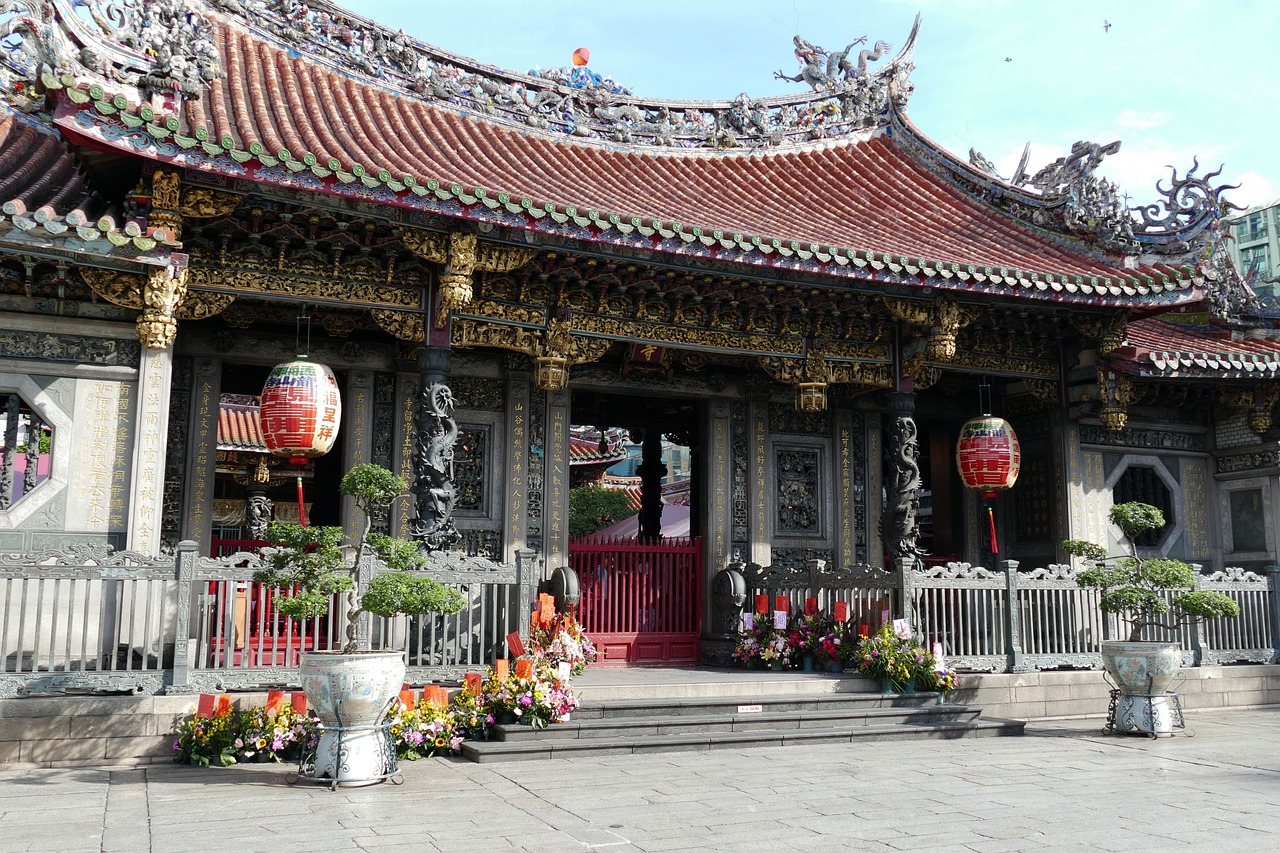
Embracing Change
Embracing change is not just a philosophical concept in Taoism; it's a way of life that encourages us to flow with the currents of existence rather than resist them. Imagine standing at the edge of a river, watching the water rush past. You can either choose to fight against the current, exhausting yourself in the process, or you can let go and allow the water to carry you forward. This metaphor beautifully encapsulates the essence of how Taoism views change. Life is inherently dynamic, and by accepting this, we open ourselves to growth and transformation.
One of the most profound teachings of Taoism is that change is not something to be feared but rather embraced. The Dao De Jing reminds us that everything is in a state of flux, and resisting change can lead to unnecessary suffering. When we learn to accept the natural ebb and flow of life, we cultivate a sense of inner peace and resilience. This acceptance allows us to adapt to new circumstances with grace and poise, rather than succumbing to anxiety or despair.
To truly embrace change, we must first acknowledge our feelings about it. It's natural to feel apprehensive when faced with the unknown. However, by reframing our perspective, we can view change as an opportunity for new experiences and personal growth. Here are some strategies to help you embrace change in your life:
- Shift Your Mindset: Instead of viewing change as a threat, consider it a chance to learn and evolve.
- Practice Mindfulness: Stay present and aware of your thoughts and feelings as changes occur, which can help reduce fear.
- Set Small Goals: Break down larger changes into manageable steps, making the process feel less overwhelming.
- Seek Support: Share your experiences with friends or family who can provide encouragement and perspective.
By applying these strategies, we can cultivate a mindset that is not only open to change but also actively seeks it out. Just like the seasons shift from spring to summer, and then to autumn and winter, our lives are meant to evolve. Embracing change allows us to grow into our true selves, aligning with the Tao and finding harmony in the midst of life's uncertainties.
In conclusion, embracing change is a vital aspect of living in accordance with Taoist principles. It encourages us to let go of the need for control and to trust in the process of life. As we navigate through the inevitable changes that come our way, we discover not only our resilience but also our capacity for joy and fulfillment. So, the next time you find yourself facing a change, remember: like water flowing around a rock, you too can adapt and thrive.

The Interconnectedness of All Things
The concept of interconnectedness is at the very heart of Taoist philosophy, serving as a reminder that everything in the universe is linked together in a vast, intricate web. Imagine a spider's web: each thread is connected, and if one part trembles, the entire web feels the effect. This analogy beautifully illustrates how our actions, thoughts, and emotions resonate throughout the universe, influencing not just ourselves but also the world around us.
Taoism teaches that every being, from the smallest insect to the towering mountains, plays a vital role in this grand tapestry of existence. The idea is not just philosophical; it’s practical. When we recognize our interconnectedness, we begin to understand the impact of our choices. For instance, consider how pollution affects not only our local environment but also distant ecosystems. This ripple effect highlights the importance of living mindfully and harmoniously with nature.
Moreover, the interconnectedness of all things encourages us to foster relationships based on empathy and understanding. When we see ourselves as part of a larger whole, we cultivate a sense of responsibility towards others and the environment. This perspective can lead to more compassionate interactions and a greater commitment to social and ecological justice.
In practical terms, embracing this interconnectedness can transform our daily lives. Here are some ways to cultivate this awareness:
- Practice Mindfulness: Engage in mindfulness practices like meditation or yoga, which can help you feel more connected to yourself and the world.
- Engage with Nature: Spend time outdoors, observing the natural world. This can deepen your appreciation for the interconnectedness of life.
- Build Community: Foster relationships with others. Understanding that we are all part of a larger community can enhance our sense of belonging.
Ultimately, recognizing the interconnectedness of all things is not just an abstract idea; it’s a call to action. It invites us to live with intention, to be aware of our impact, and to engage with the world in a way that honors the delicate balance of life. By doing so, we not only enrich our own lives but also contribute to the well-being of the entire cosmos.
- What is the significance of interconnectedness in Taoism?
Interconnectedness in Taoism highlights the relationship between all beings and the environment, emphasizing that our actions can have far-reaching effects. - How can I practice interconnectedness in my daily life?
You can practice interconnectedness by being mindful of your actions, engaging with nature, and building compassionate relationships with others. - Does interconnectedness relate to environmental issues?
Yes, recognizing interconnectedness can lead to greater awareness of environmental issues and inspire actions to protect our planet.
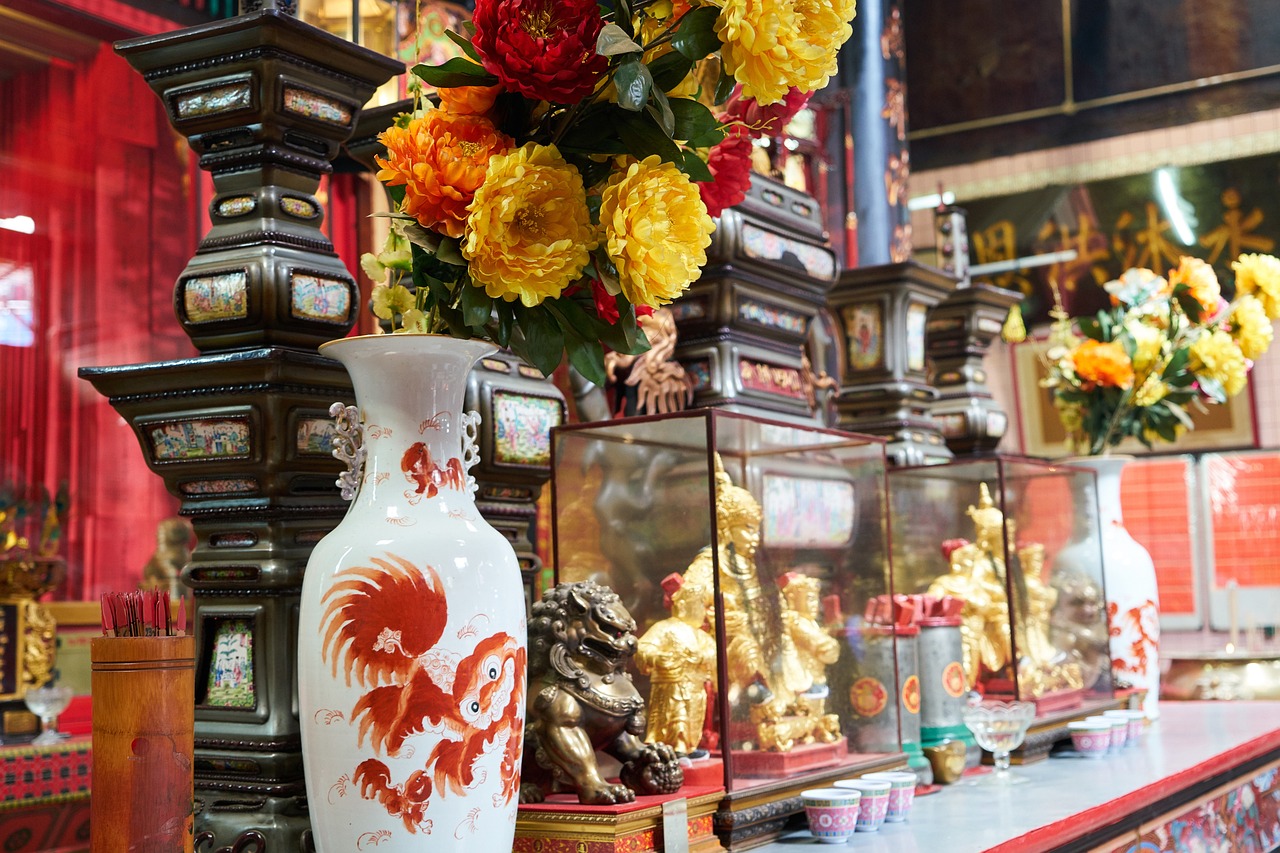
The Importance of Simplicity
The concept of simplicity in Taoism is not just about living with less; it's about embracing a lifestyle that prioritizes clarity and tranquility over chaos and clutter. In a world that often glorifies complexity, Taoism offers a refreshing perspective that encourages individuals to strip away the unnecessary layers of life. Imagine walking through a dense forest filled with tangled vines and thorns, making it hard to see the beauty around you. Now, picture that same forest after a gentle rain, where the air is clear, and the path is open. This is the essence of simplicity—a clear path that leads to a more fulfilling existence.
Simplicity allows us to focus on what truly matters. By reducing distractions and eliminating excessive desires, we create space for meaningful experiences and relationships. Think of it like cleaning out a cluttered closet. When you remove the items you no longer need, you not only make room for new things but also gain a sense of peace and order. Similarly, embracing simplicity in our lives can lead to a profound sense of inner tranquility.
In Taoist philosophy, simplicity is often linked to the idea of naturalness or Ziran. This principle encourages us to align our lives with the natural flow of the universe. When we live simply, we are more likely to notice the beauty of the world around us—the gentle rustle of leaves, the warmth of the sun, or the laughter of a friend. These moments, often overshadowed by the noise of our busy lives, become treasures that enrich our existence.
Moreover, simplicity fosters a deeper connection to ourselves and others. When we let go of societal expectations and the pressure to conform, we can live authentically. This authenticity allows us to build genuine relationships based on understanding and compassion. In a way, simplicity acts as a bridge that connects us to our true selves and to those around us.
To illustrate the importance of simplicity, consider the following table that compares a complex lifestyle with a simple one:
| Complex Lifestyle | Simple Lifestyle |
|---|---|
| Constantly chasing material possessions | Focusing on experiences and relationships |
| Overcommitted schedule filled with obligations | Flexible time for self-care and reflection |
| Living in a cluttered environment | Creating a peaceful, organized space |
| Stress and anxiety from societal pressures | Inner peace from aligning with the Tao |
Ultimately, simplicity is about finding balance. It encourages us to prioritize our physical, emotional, and spiritual well-being. By embracing simplicity, we can cultivate a life that is not only fulfilling but also deeply connected to the world around us. So, the next time you feel overwhelmed, take a step back and ask yourself: what can I simplify? What can I let go of to create a clearer path forward? Remember, a simpler life is often a richer life.
- What is the main principle of simplicity in Taoism?
The main principle of simplicity in Taoism is to reduce distractions and focus on what truly matters, leading to a more fulfilling and peaceful existence. - How can I incorporate simplicity into my daily life?
You can incorporate simplicity by decluttering your physical space, prioritizing meaningful relationships, and allowing time for self-reflection. - Why is simplicity important for mental well-being?
Simplicity reduces stress and anxiety, allowing for greater clarity and peace of mind, which are crucial for mental well-being. - Can simplicity help in personal growth?
Yes, by focusing on essential aspects of life, simplicity can foster personal growth and a deeper understanding of oneself.
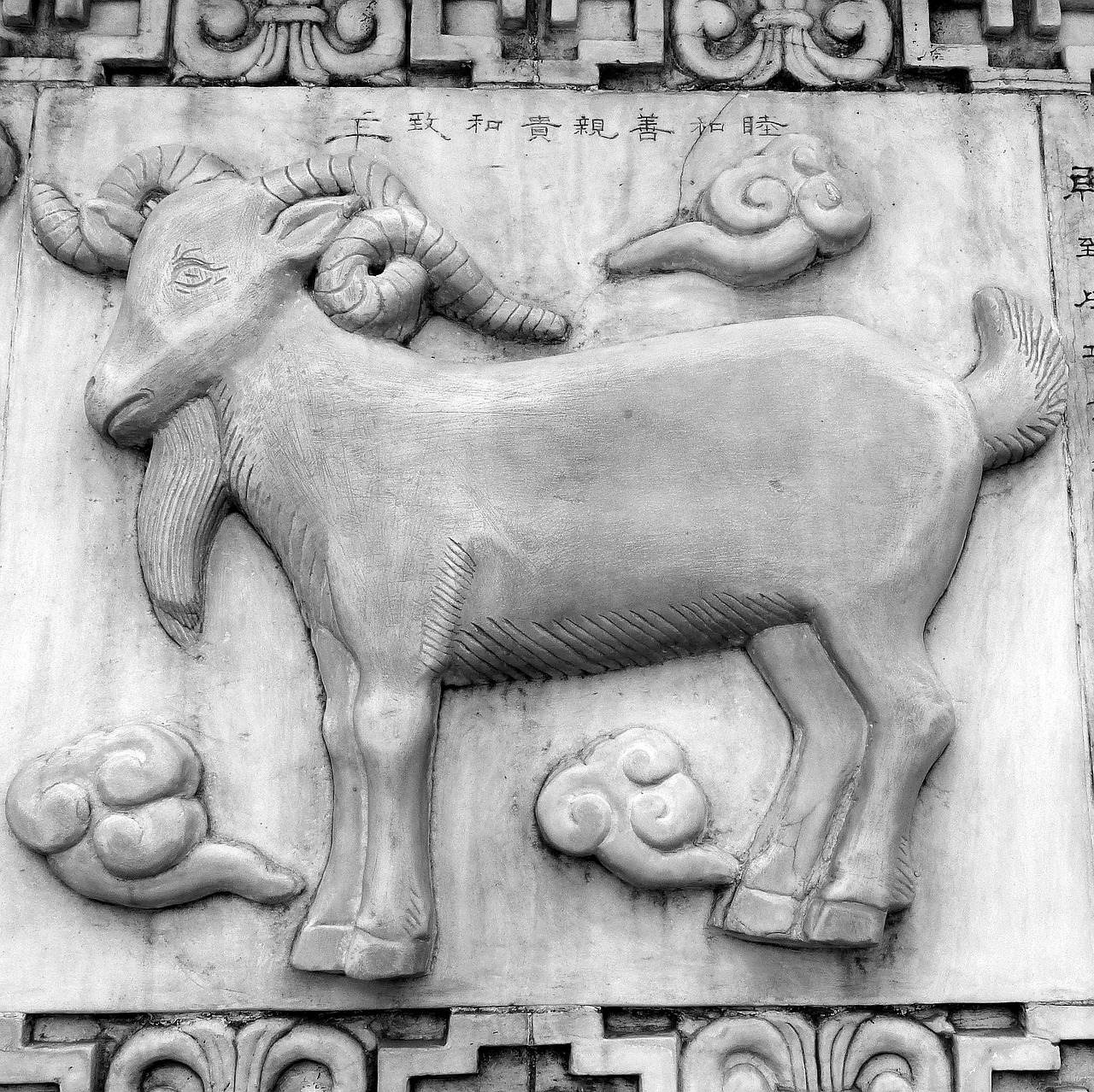
Minimalism in Daily Life
In a world that constantly bombards us with choices, advertisements, and the relentless pursuit of more, minimalism offers a refreshing perspective. Imagine walking into a room that is not cluttered with unnecessary items, where every object has a purpose and a place. This is the essence of minimalism — it’s about stripping away the excess to focus on what truly matters. By integrating minimalism into our daily lives, we can cultivate a sense of clarity and peace that often feels elusive in our fast-paced society.
So, how do we embrace minimalism practically? It begins with a simple yet profound question: What do I truly need? This question can guide us in evaluating our possessions, commitments, and even our thoughts. For instance, consider your wardrobe. Do you wear all the clothes hanging in your closet? Or are there pieces that have been untouched for months? A minimalist approach encourages us to keep only those items that serve a purpose or bring us joy. This not only reduces clutter but also makes our choices easier and more intentional.
Incorporating minimalism into daily routines can be transformative. Here are some practical steps to get started:
- Declutter Regularly: Set aside time each month to go through your belongings and let go of items you no longer use or need.
- Limit Digital Clutter: Unsubscribe from unnecessary emails, delete unused apps, and organize your digital files. A clean digital space can lead to a clearer mind.
- Practice Mindful Consumption: Before making a purchase, ask yourself if the item will add real value to your life. This mindfulness can prevent impulse buying and lead to more meaningful acquisitions.
Moreover, minimalism isn’t just about physical possessions; it extends to our mental and emotional landscapes. Reducing the noise in our lives can help us focus on the present moment, fostering a deeper connection with ourselves and our surroundings. It encourages us to prioritize experiences over things, nurturing relationships and personal growth rather than accumulating material goods.
To illustrate the impact of minimalism, consider the following table that outlines the benefits of adopting a minimalist lifestyle:
| Benefit | Description |
|---|---|
| Increased Clarity | Less clutter leads to a clearer mind, allowing for better focus and decision-making. |
| Reduced Stress | A simplified environment can significantly decrease anxiety and stress levels. |
| Enhanced Creativity | With fewer distractions, your mind is free to explore new ideas and solutions. |
| Greater Satisfaction | Focusing on experiences rather than possessions often leads to deeper fulfillment. |
Ultimately, minimalism in daily life is about creating space — both physically and mentally. It’s a conscious choice to prioritize what truly enriches our existence. As we peel back the layers of excess, we may find that the simplicity we crave is already within reach, waiting for us to embrace it.
- What is minimalism? Minimalism is a lifestyle that focuses on reducing excess and prioritizing what truly matters in life.
- How can I start practicing minimalism? Begin by decluttering your space, evaluating your possessions, and making mindful choices about what you bring into your life.
- Is minimalism only about physical possessions? No, minimalism also applies to mental and emotional aspects, encouraging a simpler, more focused mindset.
- Can minimalism improve my mental health? Yes, many people find that reducing clutter and simplifying their lives leads to decreased stress and anxiety.
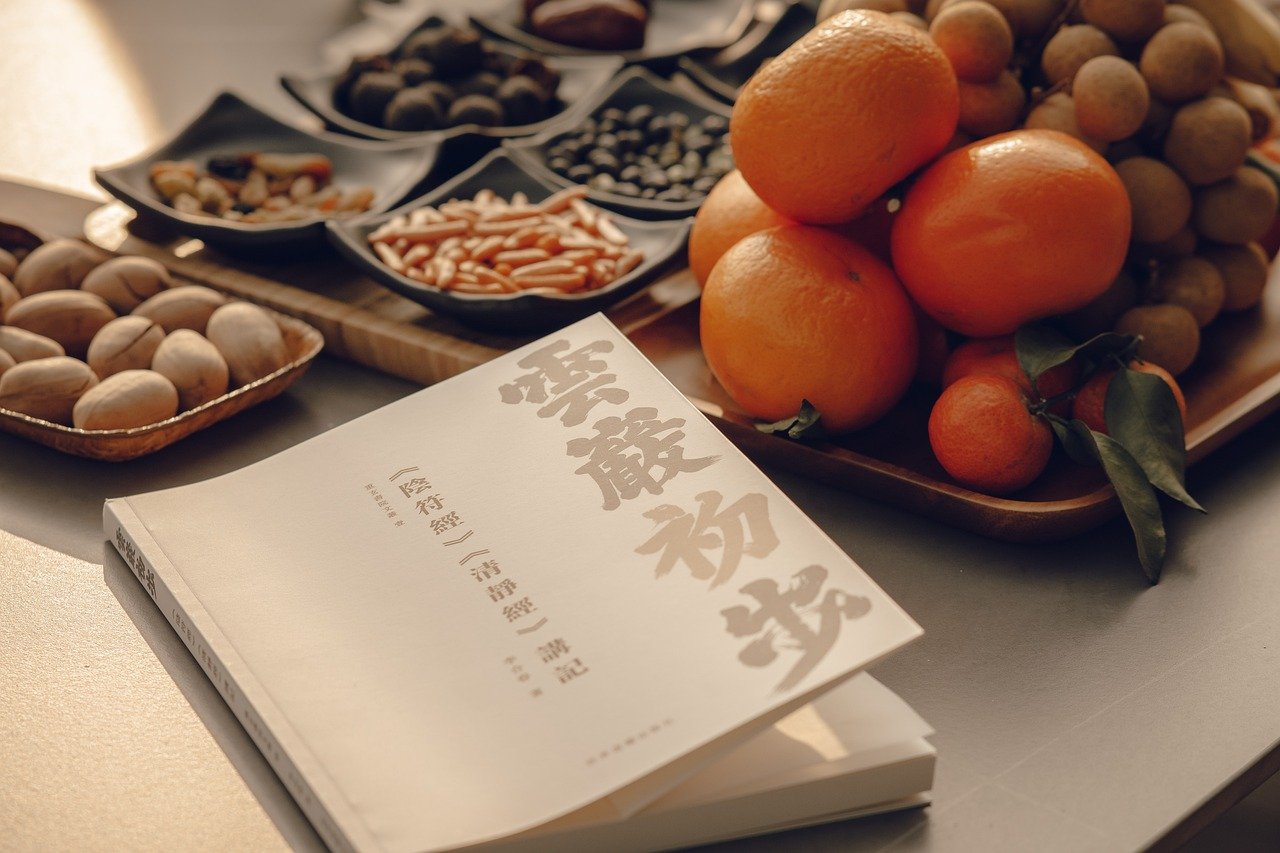
Finding Balance
Finding balance in life can often feel like trying to walk a tightrope—one misstep and you could find yourself tumbling into chaos. In the realm of Taoism, balance is not just a goal; it’s a way of being that aligns us with the Tao, or the natural order of the universe. The essence of balance is about harmonizing various aspects of our lives: physical, emotional, and spiritual. Imagine being a well-tuned instrument, where each string resonates perfectly with the others, creating a beautiful symphony. That's the kind of balance Taoism encourages us to seek.
To achieve this harmony, we must first understand that balance is not a static state; it’s a dynamic process. Life is full of ups and downs, and the key is to navigate these changes with grace. For instance, when you feel overwhelmed by work, it’s essential to carve out time for relaxation and self-care. This can be as simple as enjoying a quiet evening with a book or practicing mindfulness through meditation. By consciously making space for both productivity and rest, you create a rhythm that allows you to thrive.
Moreover, Taoism teaches us to embrace the concept of yin and yang. This ancient symbol represents the duality of life, where opposite forces are interconnected and interdependent. In your journey to find balance, consider the following:
- Yin: Represents qualities like passivity, receptivity, and introspection. It’s about nurturing yourself and allowing moments of stillness.
- Yang: Embodies action, assertiveness, and outward energy. It’s about pursuing your goals and engaging with the world around you.
Striking a balance between these forces can lead to a more fulfilling life. For example, if you find yourself constantly in "yang" mode—working hard and pushing forward—take a step back to allow some "yin" into your life. This might mean scheduling a day off or simply enjoying a leisurely walk in nature. By alternating between these energies, you can cultivate a sense of equilibrium that enhances your overall well-being.
Additionally, it's crucial to recognize that balance extends beyond the individual. Our relationships with family, friends, and colleagues also require a delicate equilibrium. When conflicts arise, instead of reacting impulsively, take a moment to breathe and assess the situation. This approach not only helps in resolving disputes but also fosters deeper connections with those around you.
In the end, finding balance is about mindfulness and intentionality. It’s about being aware of your needs and the needs of others, and making conscious choices that lead to a harmonious existence. So, take a moment to reflect on your life. Are there areas where you feel out of sync? By embracing the teachings of Taoism, you can start to restore that balance, creating a life that flows effortlessly with the rhythms of the universe.
- What is the main principle of balance in Taoism?
Balance in Taoism revolves around harmonizing the yin and yang aspects of life, ensuring that both energies are present and flowing. - How can I apply Taoist principles to find balance?
Start by observing areas in your life that feel off-balance, and consciously introduce practices that nurture both action and stillness. - Is finding balance a one-time effort?
No, finding balance is an ongoing process that requires regular reflection and adjustment as life circumstances change.
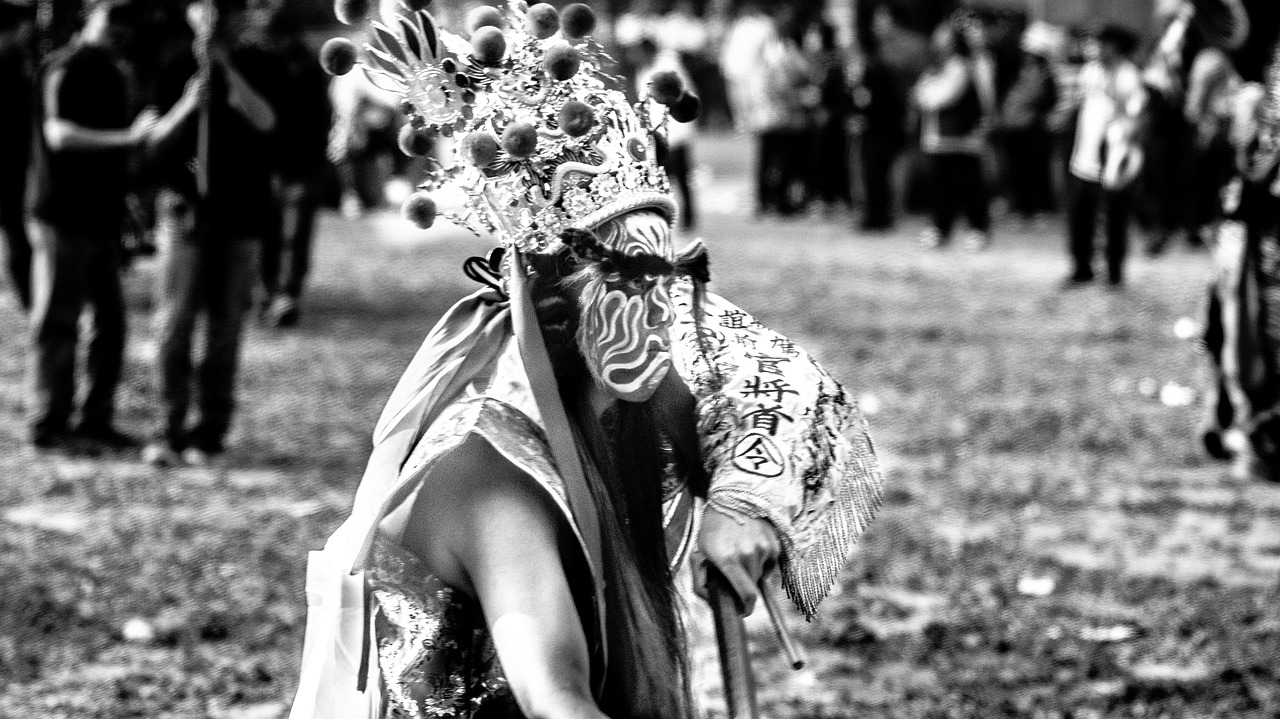
The Influence of the Dao De Jing
The Dao De Jing, attributed to the ancient sage Laozi, stands as a monumental text in the realm of Taoist philosophy. Its teachings have transcended time, influencing countless individuals, leaders, and cultures across the globe. But what makes this text so profound? At its core, the Dao De Jing encapsulates the essence of the Tao, or the Way, providing insights that resonate deeply with the human experience. Through its poetic verses, it offers not just philosophical musings but practical wisdom that can guide us in our daily lives.
One of the remarkable aspects of the Dao De Jing is its ability to speak to the heart of human nature. Laozi's verses delve into the complexities of life, addressing themes such as leadership, humility, and the art of living harmoniously with oneself and the world. For example, Laozi emphasizes that a true leader is not one who imposes their will but rather one who embodies the principles of wu wei—effortless action. This concept encourages leaders to foster an environment of trust and collaboration, allowing for organic growth rather than forced outcomes.
Moreover, the Dao De Jing teaches us about the importance of simplicity and naturalness. In a world that often champions complexity and materialism, Laozi reminds us that true fulfillment lies in embracing simplicity and aligning with the natural flow of life. By shedding unnecessary desires and distractions, we can cultivate a sense of peace and clarity. This principle resonates even today, as many individuals seek to simplify their lives amidst the chaos of modern existence.
To illustrate the enduring relevance of the Dao De Jing, consider the following table that highlights some key teachings and their applications:
| Key Teaching | Application |
|---|---|
| Wu Wei (Effortless Action) | Encourages individuals to act in harmony with their surroundings, reducing stress and enhancing productivity. |
| Naturalness (Ziran) | Promotes authenticity and self-acceptance, allowing individuals to live true to themselves. |
| Interconnectedness | Fosters a sense of community and responsibility towards others, enhancing relationships. |
| Simplicity | Encourages minimalism, helping individuals focus on what truly matters in life. |
As we navigate the complexities of contemporary life, the teachings of the Dao De Jing offer profound insights that can help us cultivate personal growth and resilience. Its principles can be applied in various aspects of life, from conflict resolution to enhancing our understanding of ourselves and others. By embracing the wisdom of this ancient text, we can foster a deeper connection with the world around us and nurture our inner peace.
- What is the Dao De Jing? The Dao De Jing is a foundational text of Taoism, attributed to Laozi, that explores the principles of the Tao and offers guidance on living harmoniously.
- How can the teachings of the Dao De Jing be applied in modern life? The teachings can guide personal growth, conflict resolution, and foster a deeper understanding of oneself and others.
- What is the significance of wu wei? Wu wei, or effortless action, emphasizes the importance of aligning one's actions with the natural flow of life, reducing stress and enhancing effectiveness.
- Why is simplicity important in Taoism? Simplicity encourages individuals to focus on what truly matters, promoting inner tranquility and reducing distractions in a complex world.
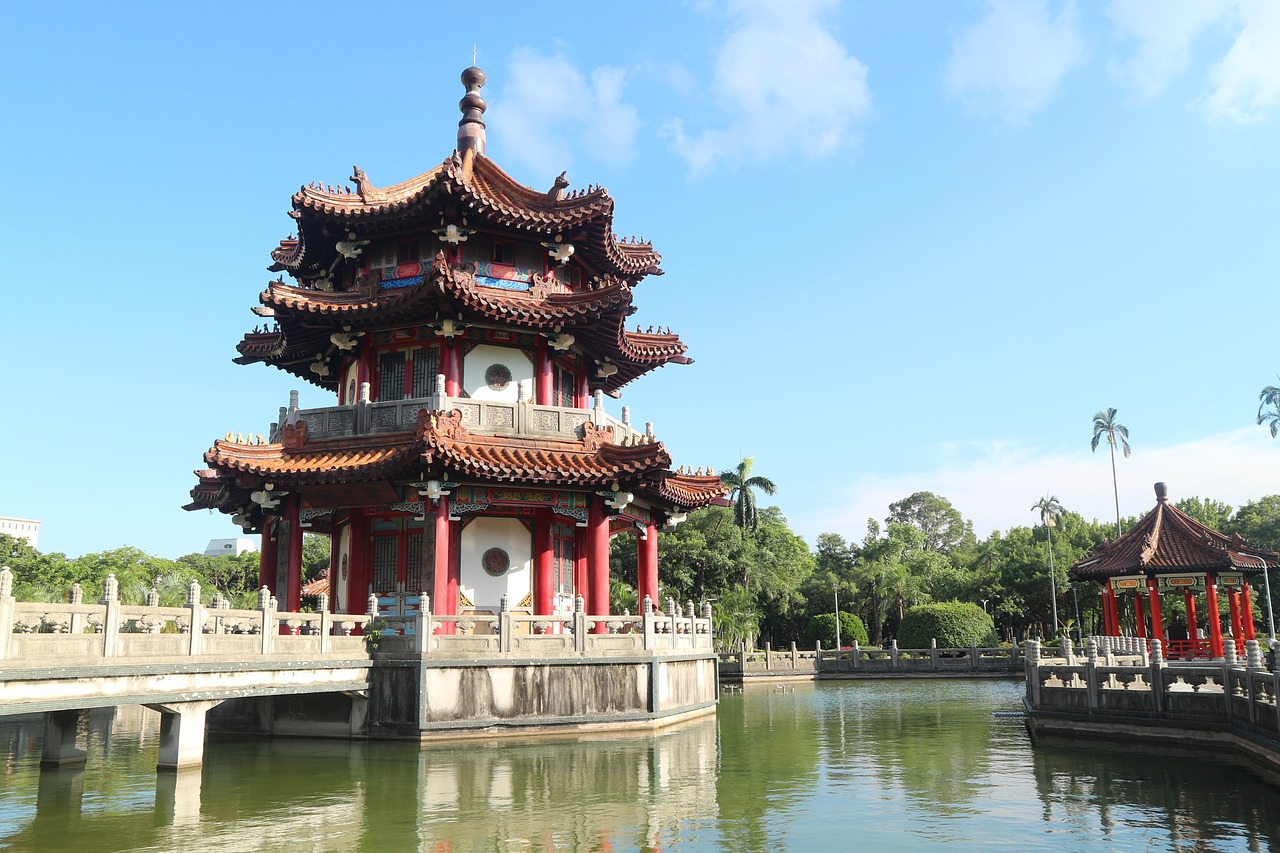
Key Teachings and Verses
The Dao De Jing is a treasure trove of wisdom, offering insights that resonate deeply with the human experience. One of the most profound teachings from this ancient text is the idea that simplicity is the ultimate sophistication. Laozi emphasizes that by stripping away the unnecessary layers of life, we can uncover the essence of our being and live more authentically. This principle echoes throughout the verses, urging us to embrace a life of minimalism and clarity.
Another key teaching is the concept of non-action, or wuwei. This doesn’t mean being passive or lazy; rather, it encourages us to act in accordance with the natural flow of the universe. Imagine trying to swim upstream against a strong current – exhausting, right? Instead, the Dao De Jing teaches us to go with the flow, making our actions more effective and harmonious. This principle can be a game-changer in our daily lives, especially in a world that often glorifies hustle and relentless striving.
Throughout the text, Laozi also speaks to the importance of humility. He reminds us that true leaders are those who lead without seeking power or recognition. Instead, they embody the qualities of gentleness and compassion, guiding others by example rather than through force. This perspective is a refreshing reminder that leadership is not about dominance but about serving others and fostering a sense of community.
Here are a few selected verses from the Dao De Jing that encapsulate these teachings:
| Verse | Key Teaching |
|---|---|
| Verse 2 | Embrace duality and recognize that opposites are interconnected. |
| Verse 8 | Living in accordance with nature leads to true fulfillment. |
| Verse 29 | Efforts to control often lead to failure; let things unfold naturally. |
| Verse 63 | Practice non-action to achieve your goals effortlessly. |
These verses not only provide guidance for personal development but also offer a lens through which to view the complexities of life. The teachings of the Dao De Jing encourage us to cultivate a sense of peace amidst chaos, reminding us that the world is a tapestry of interconnected threads, each influencing the other in profound ways.
In modern life, the principles found in the Dao De Jing can be applied to various aspects, from personal relationships to professional endeavors. By embracing simplicity, practicing humility, and allowing ourselves to flow with life's currents, we can navigate challenges with grace and resilience. So, the next time you find yourself overwhelmed, consider taking a step back and reflecting on the wisdom of Laozi. It might just lead you to a more fulfilling path.
- What is the Dao De Jing? - The Dao De Jing is an ancient Chinese text attributed to Laozi, foundational to Taoist philosophy.
- What does 'Wu Wei' mean? - Wu Wei translates to 'non-action' or 'effortless action,' emphasizing the importance of aligning with the natural flow of life.
- How can I apply Taoist principles in my life? - You can start by simplifying your life, practicing humility, and embracing change as a constant in your journey.
- Is Taoism relevant today? - Absolutely! The teachings of Taoism offer timeless wisdom that can help us navigate the complexities of modern life.
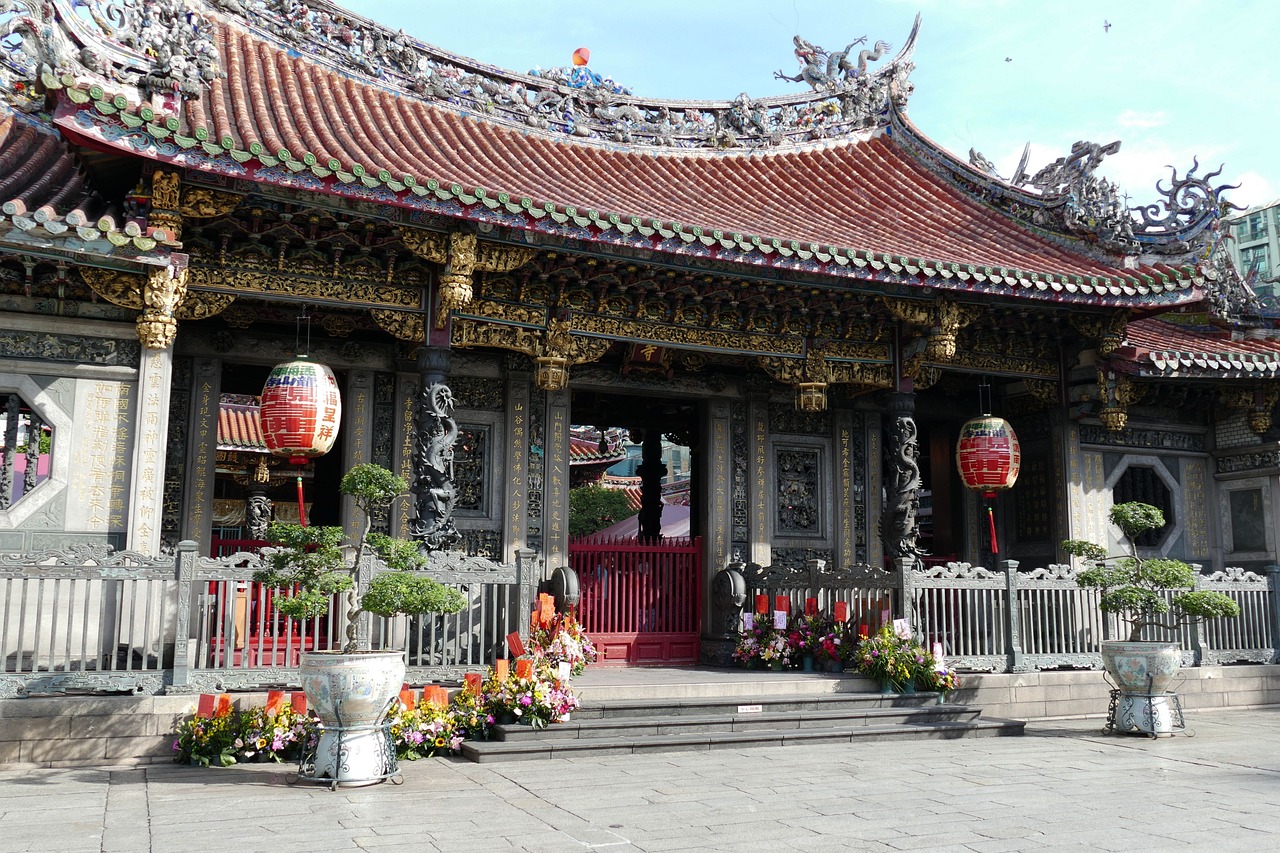
Applications in Modern Life
In a world that often feels chaotic and overwhelming, the teachings of the Dao De Jing provide a refreshing perspective on how to navigate modern challenges. Whether you're dealing with stress at work, personal relationships, or the fast pace of life, the principles of Taoism can serve as a guiding light. So, how can we apply these ancient teachings to our contemporary lives? Let's explore some practical applications that can help us find balance and peace.
First and foremost, the concept of Wu Wei, or "non-action," encourages us to embrace a more relaxed approach to life. This doesn’t mean being passive or lazy; rather, it suggests that we should strive to align our actions with the natural flow of events. Imagine trying to swim upstream against a strong current—exhausting, right? Instead, Taoism teaches us to go with the flow, allowing opportunities to present themselves organically. This principle can be particularly beneficial in our careers. Instead of forcing outcomes, we can focus on being present, responding to situations as they arise, and trusting that the right path will unfold.
Another significant aspect of Taoism is its emphasis on simplicity. In our consumer-driven society, we are bombarded with choices and distractions that can lead to mental clutter. By adopting a minimalist lifestyle, we can clear away the excess and focus on what truly matters. This might mean decluttering your living space, simplifying your schedule, or even reducing your digital footprint. When we strip away the unnecessary, we create room for clarity and peace. Studies have shown that minimalism can lead to reduced stress levels, increased productivity, and greater overall happiness.
Moreover, the Taoist view of interconnectedness can profoundly impact our relationships. Understanding that we are all part of a greater whole encourages empathy and compassion. In practice, this means actively listening to others, recognizing their perspectives, and fostering meaningful connections. When we see ourselves as part of a larger community, we are more likely to engage in cooperative behaviors, leading to healthier relationships and a more harmonious society.
To illustrate these applications, consider the following table that outlines practical ways to incorporate Taoist principles into daily life:
| Taoist Principle | Modern Application |
|---|---|
| Wu Wei (Non-Action) | Practice mindfulness and allow situations to unfold naturally. |
| Simplicity | Declutter your space and minimize distractions. |
| Interconnectedness | Engage in active listening and foster community connections. |
| Balance | Prioritize self-care and maintain a healthy work-life balance. |
Lastly, embracing the inevitability of change, as taught in Taoism, can be incredibly liberating. Life is full of twists and turns, and resisting change often leads to frustration. Instead, by accepting that change is a natural part of existence, we can cultivate resilience and adaptability. This mindset allows us to face challenges with grace and emerge stronger on the other side.
In conclusion, the Dao De Jing offers timeless wisdom that can be seamlessly integrated into our modern lives. By practicing non-action, embracing simplicity, recognizing interconnectedness, and accepting change, we can cultivate a more fulfilling and peaceful existence. So, why not take a moment today to reflect on these principles? You might just find that the answers you seek are already within you, waiting to be discovered.
- What is the core message of the Dao De Jing? The core message revolves around living in harmony with the Tao, or the natural order of the universe.
- How can I apply Taoist principles in my daily life? Start by practicing mindfulness, simplifying your surroundings, and embracing change.
- Is Taoism a religion? Taoism is more of a philosophy and way of life rather than a traditional religion.
- Can Taoism help with stress management? Yes, the principles of Wu Wei and simplicity can significantly reduce stress and promote inner peace.
Frequently Asked Questions
- What is the Tao in Taoism?
The Tao, often referred to as "the Way," is the fundamental principle of Taoist philosophy. It represents the natural order of the universe and encourages individuals to align themselves with this intrinsic flow, allowing for a harmonious existence.
- What does Wu Wei mean?
Wu Wei translates to "non-action" or "effortless action." It is a central tenet in Taoism that advocates for going with the flow of life rather than forcing one's way through challenges. It's about finding ease in the natural course of events.
- How does Taoism view change?
Taoism teaches that change is an inevitable part of life. Embracing change and adapting to it are essential qualities for maintaining inner peace and navigating life's uncertainties. It's about accepting the flow of life rather than resisting it.
- What does living authentically mean in Taoism?
Living authentically in Taoism involves recognizing and expressing one's true self without being influenced by societal expectations. It encourages individuals to embrace their unique nature, leading to a more harmonious and fulfilling life.
- Why is simplicity important in Taoism?
Simplicity is a core value in Taoism, promoting a life free from excessive desires and complications. By focusing on what truly matters, individuals can cultivate inner tranquility and clarity, aligning with the Taoist way of living.
- What is the Dao De Jing?
The Dao De Jing, attributed to Laozi, is a foundational text of Taoism. It offers profound wisdom and guidance, shaping the philosophy and practices of countless individuals throughout history, making it a timeless resource for understanding Taoist principles.
- How can the teachings of the Dao De Jing be applied today?
The teachings of the Dao De Jing can be applied in modern life by offering insights for personal growth, conflict resolution, and fostering a deeper understanding of oneself and others. Its principles can guide individuals in navigating the complexities of contemporary living.

